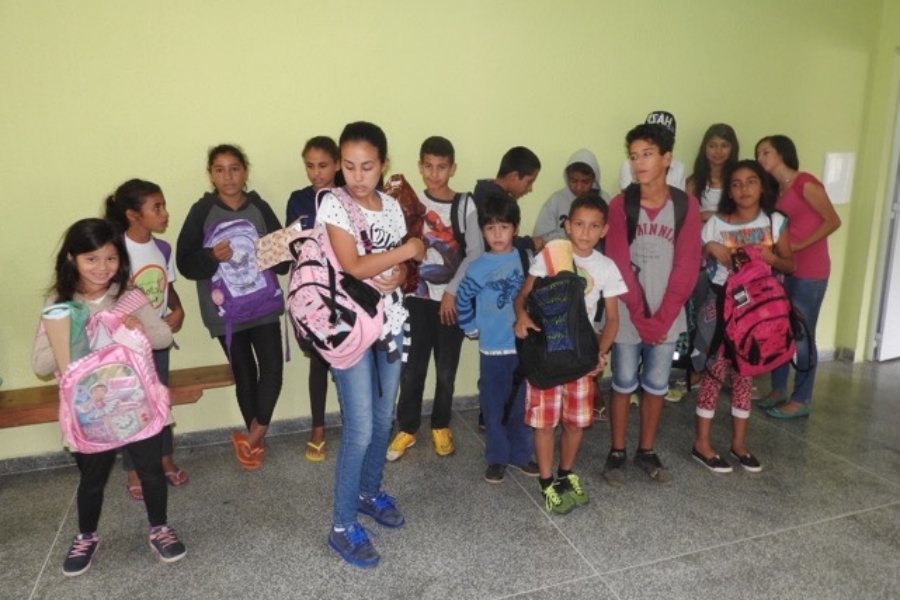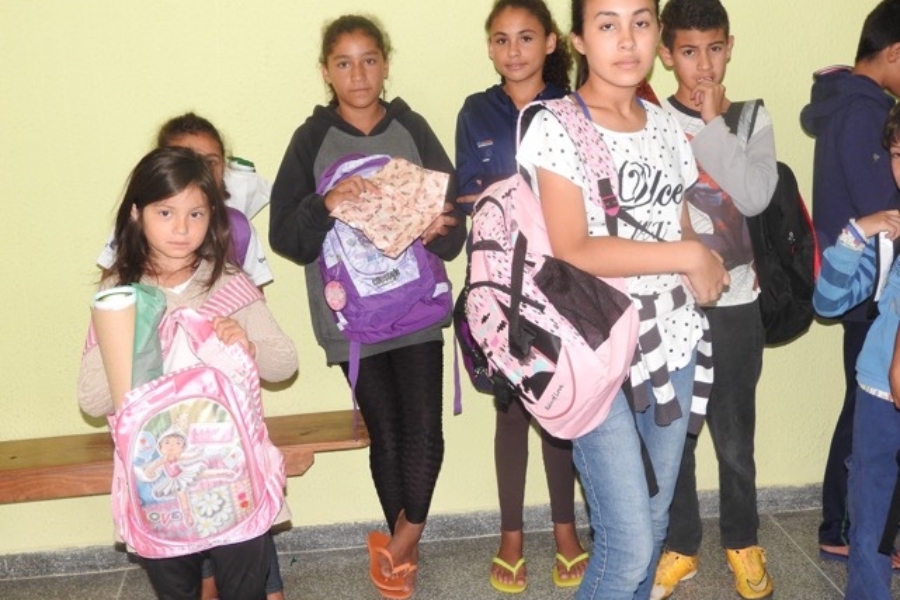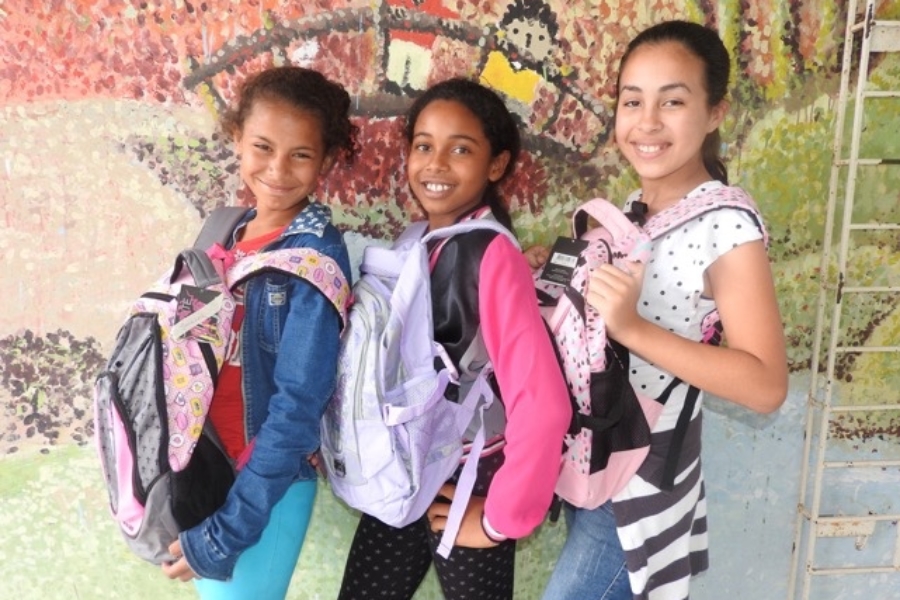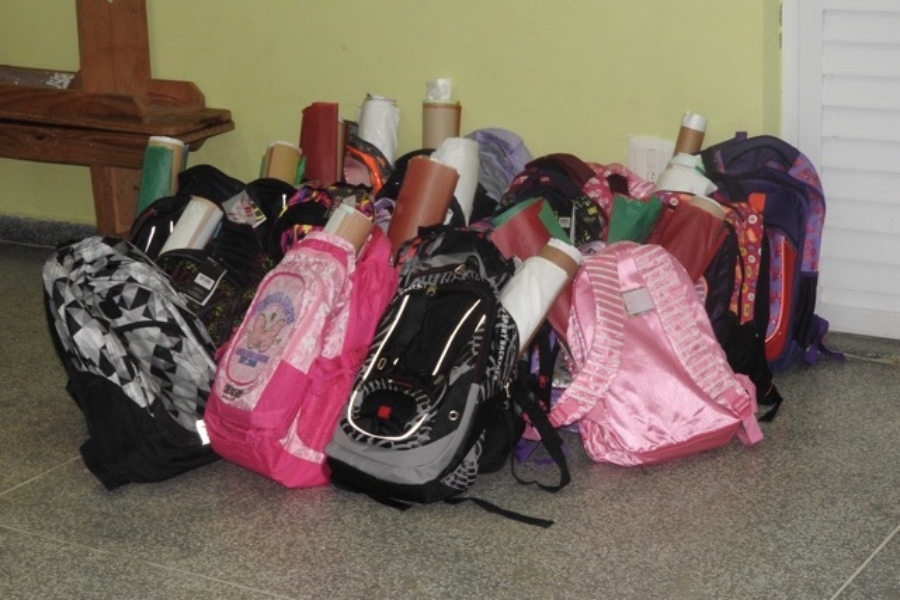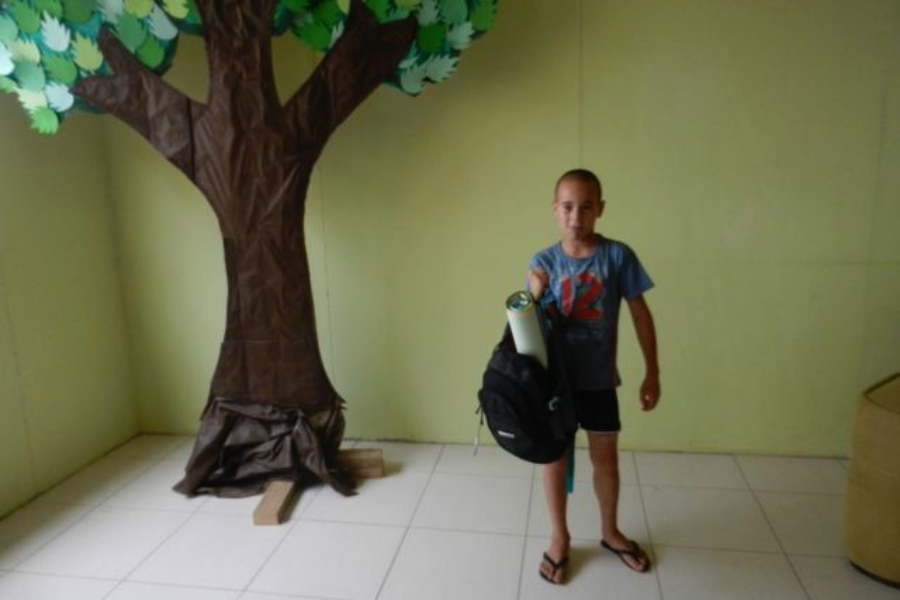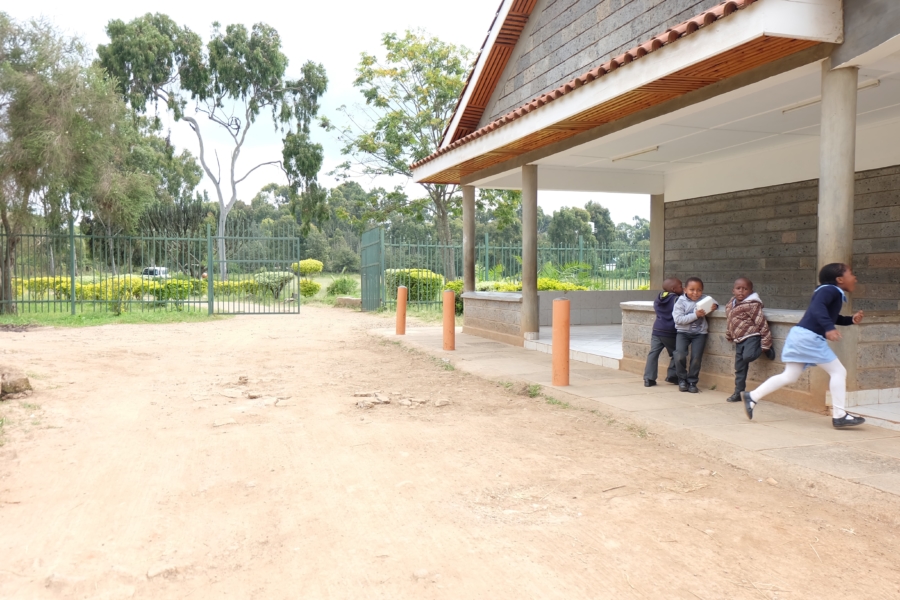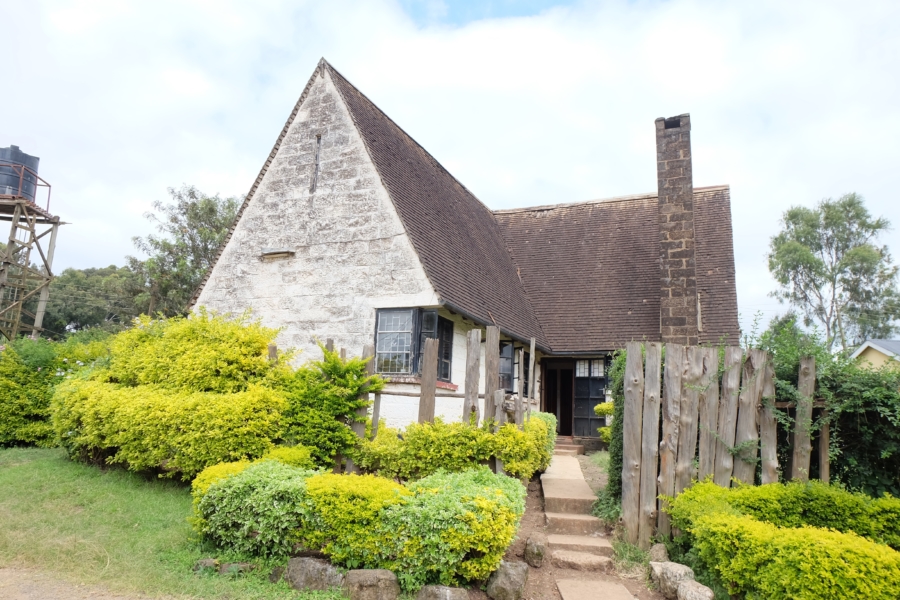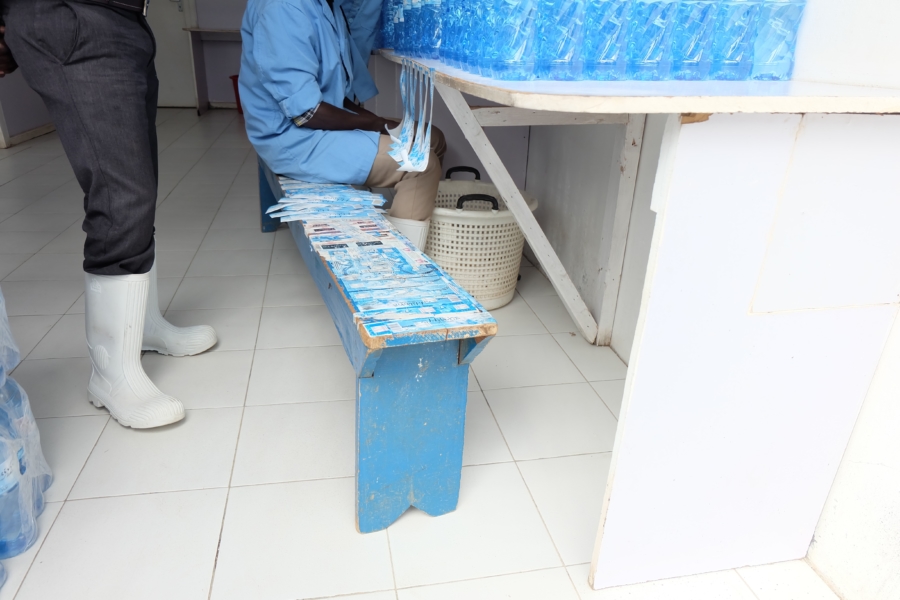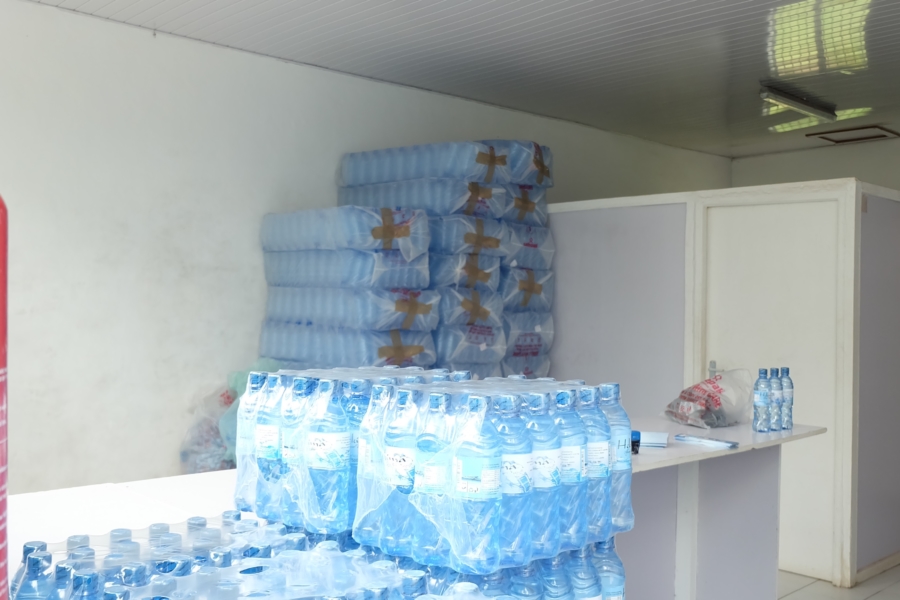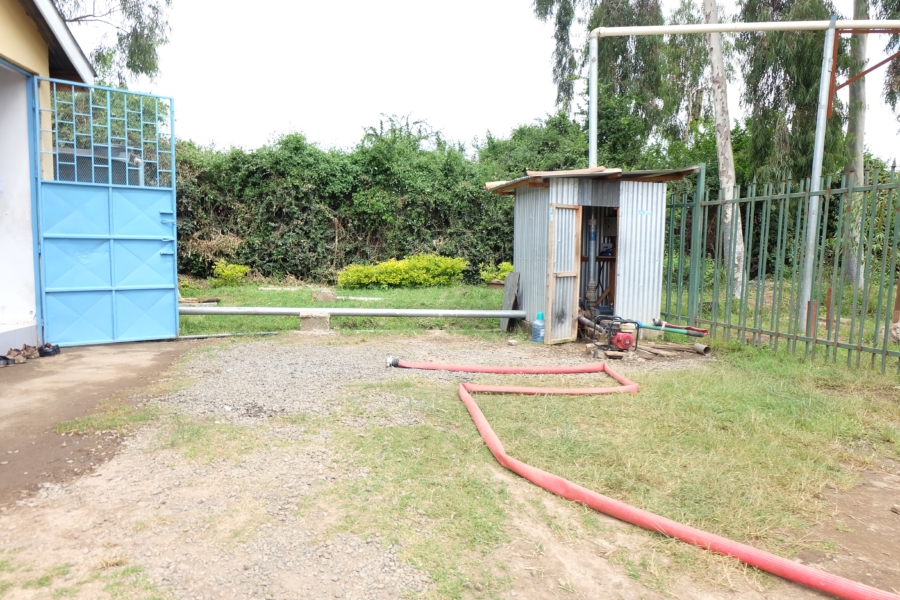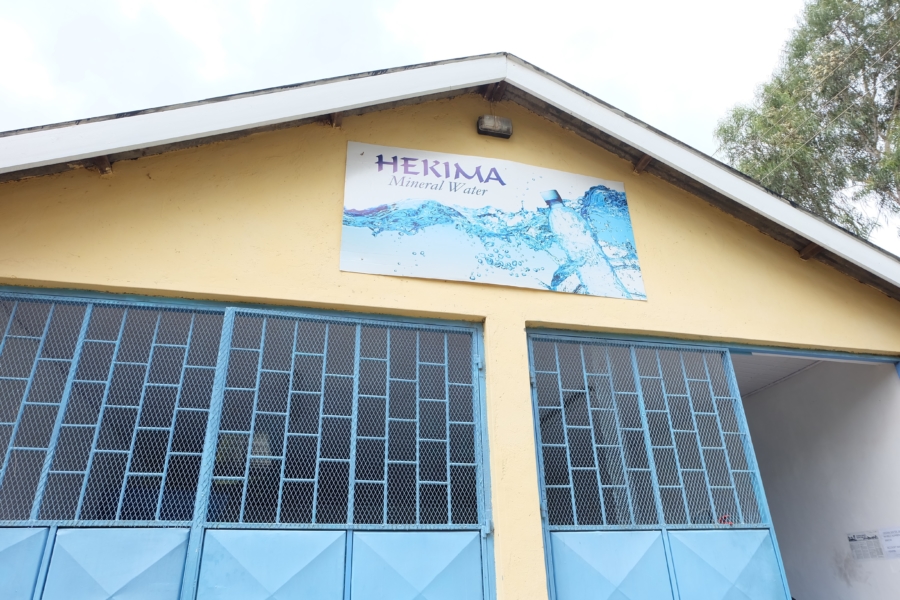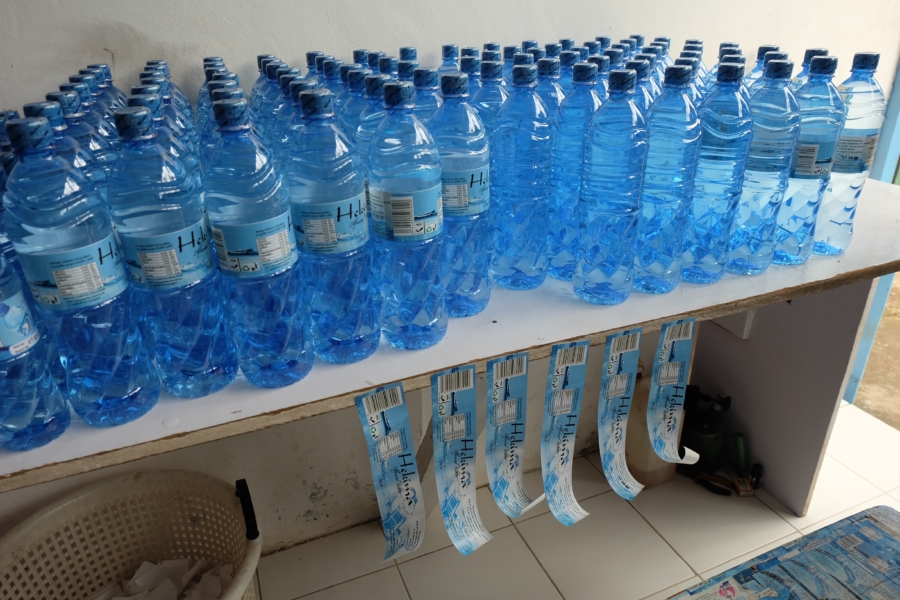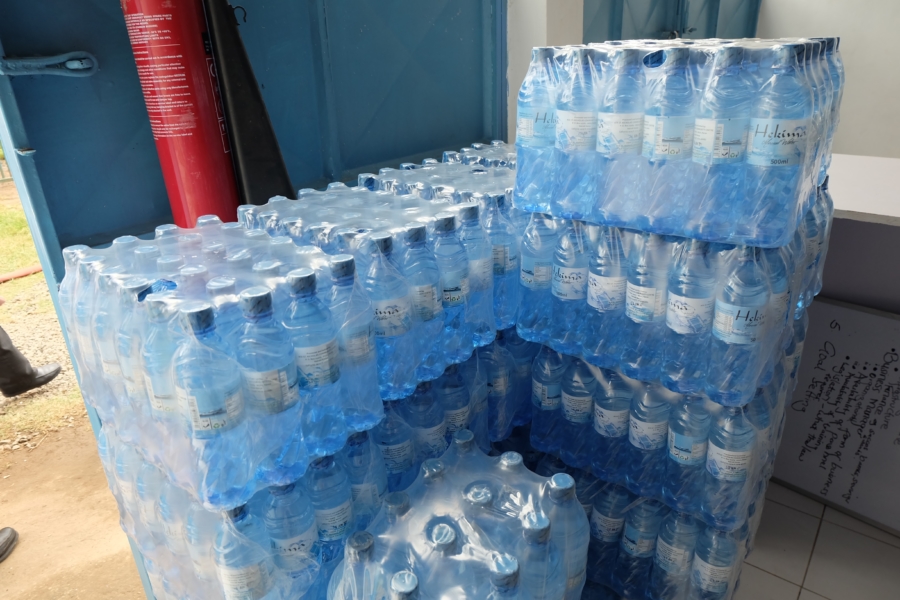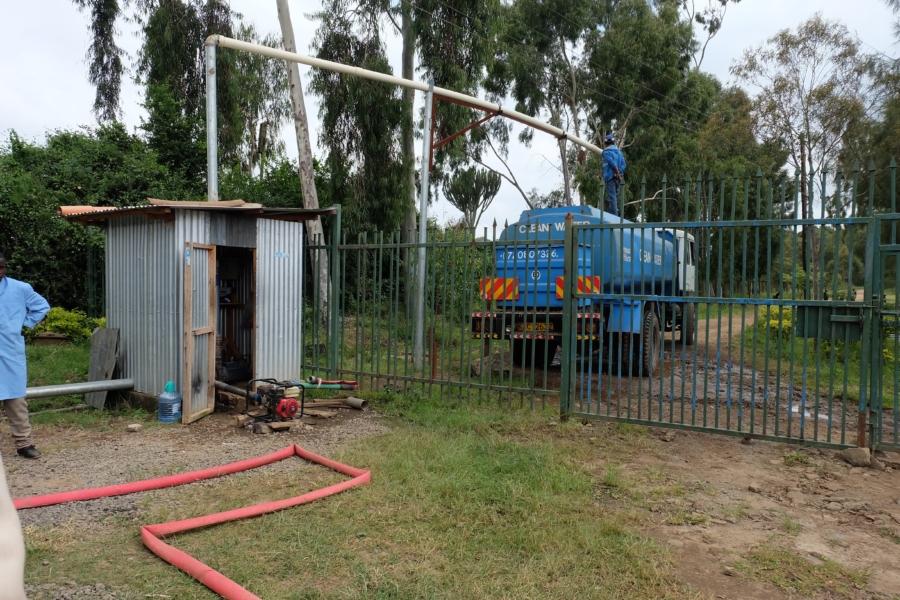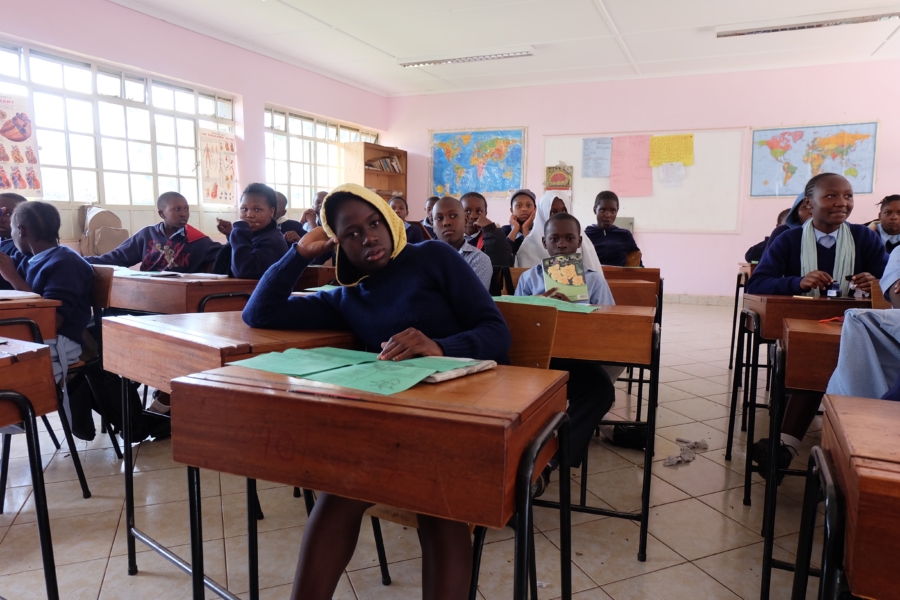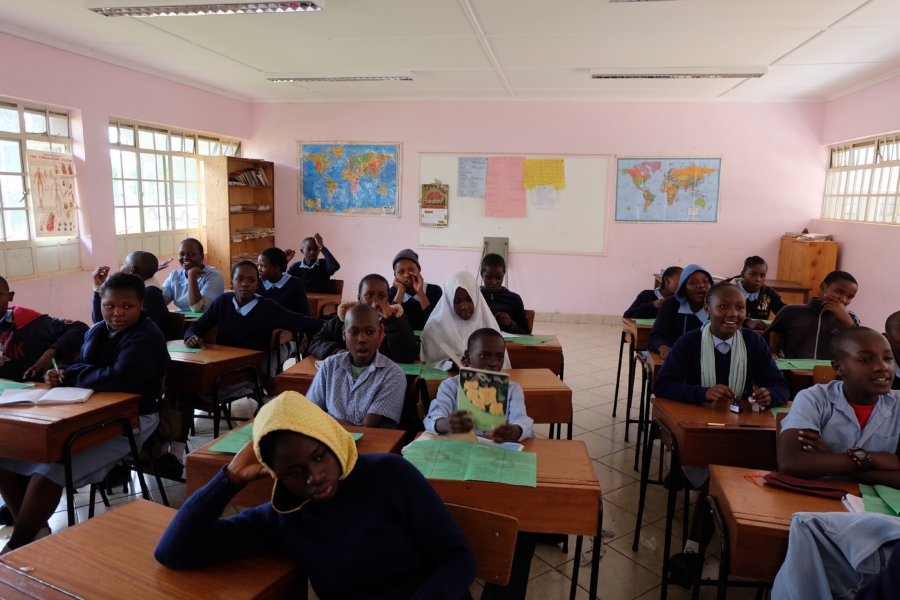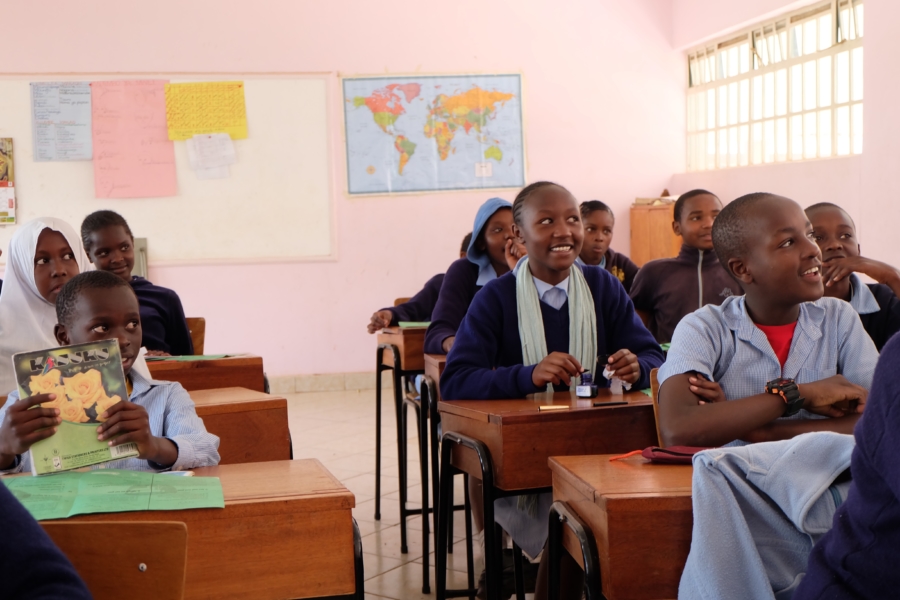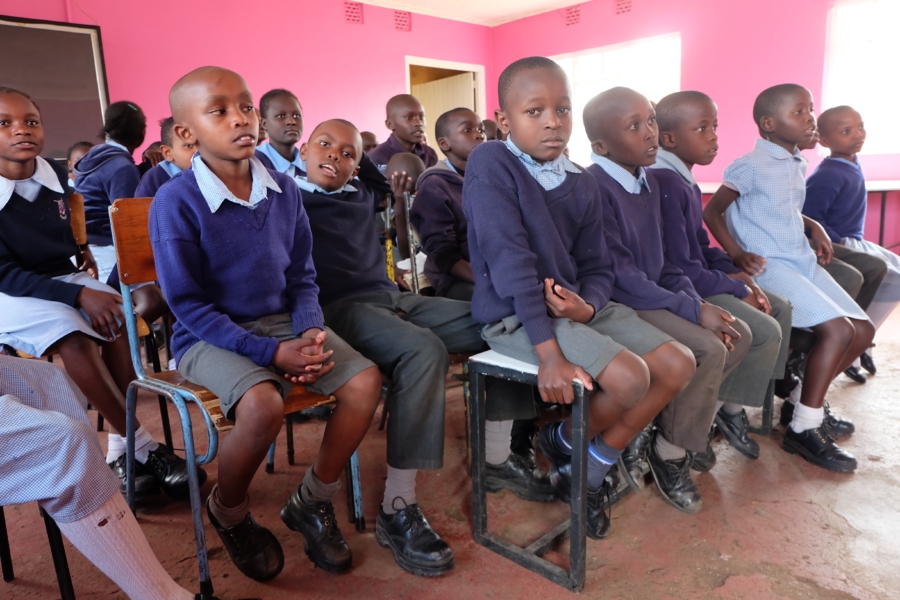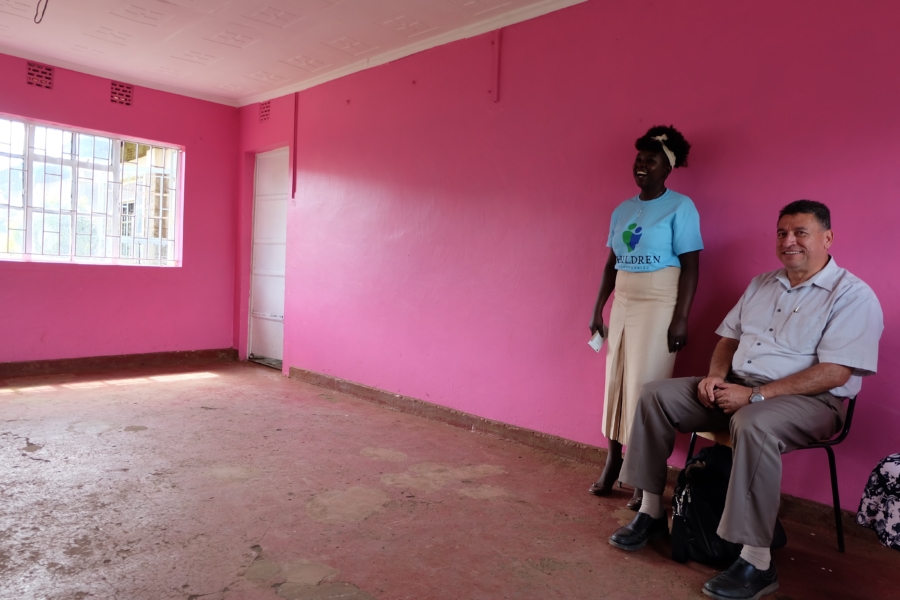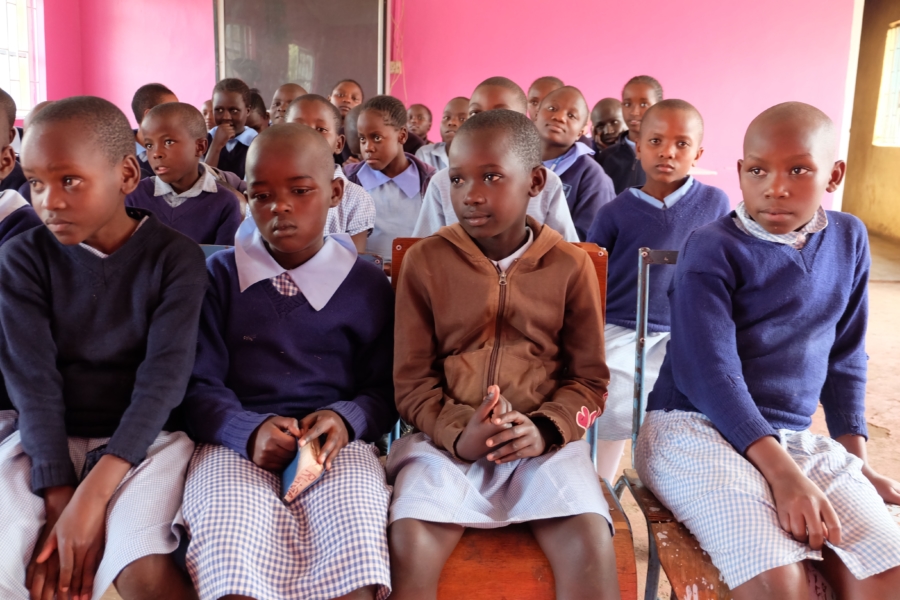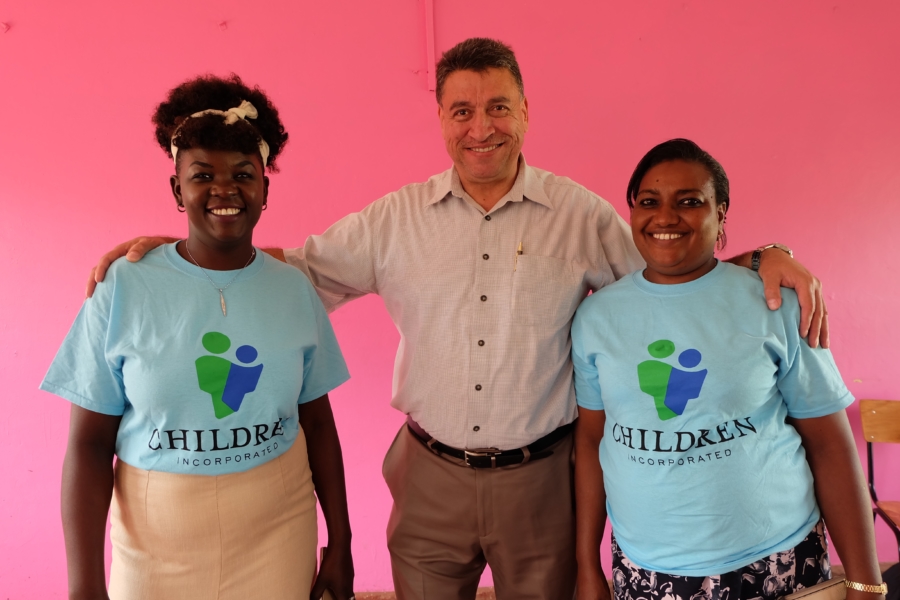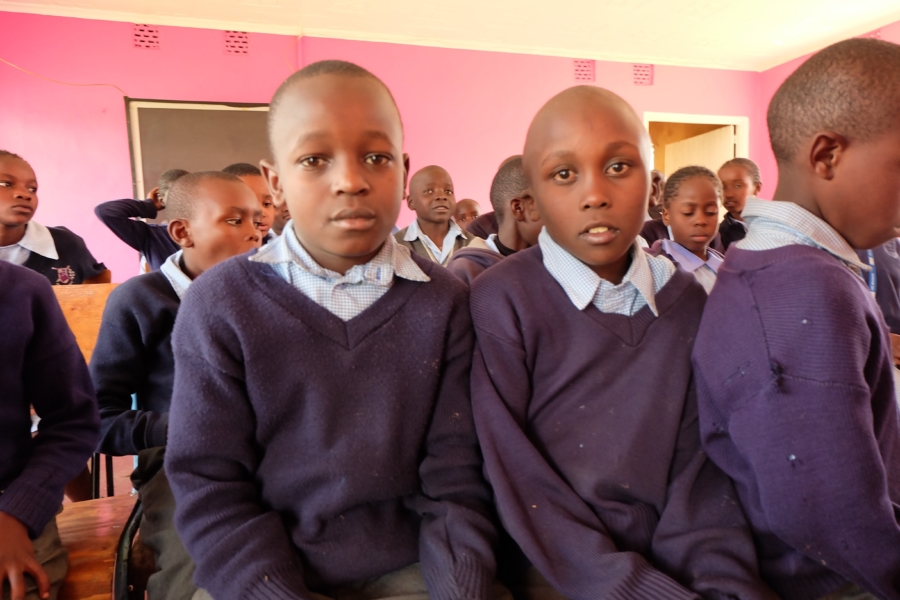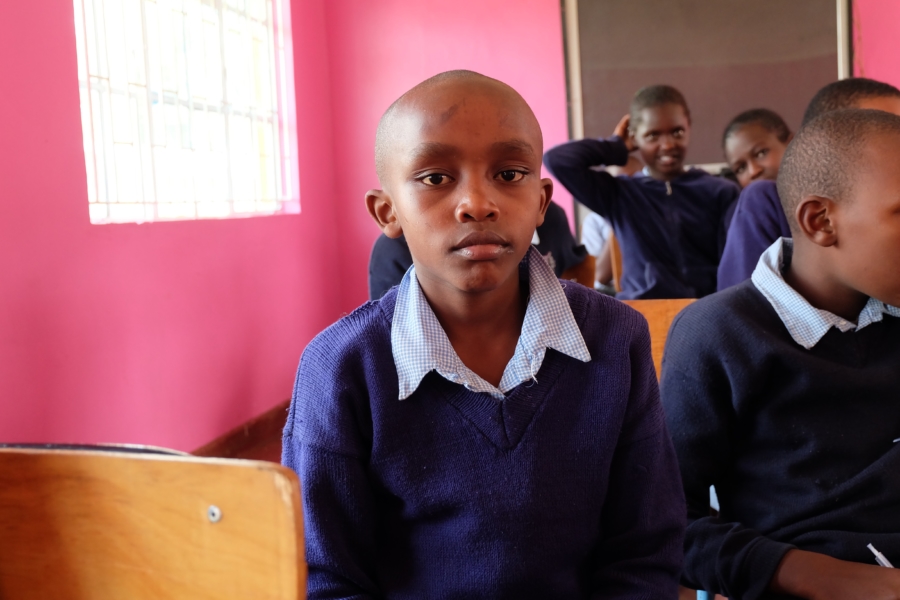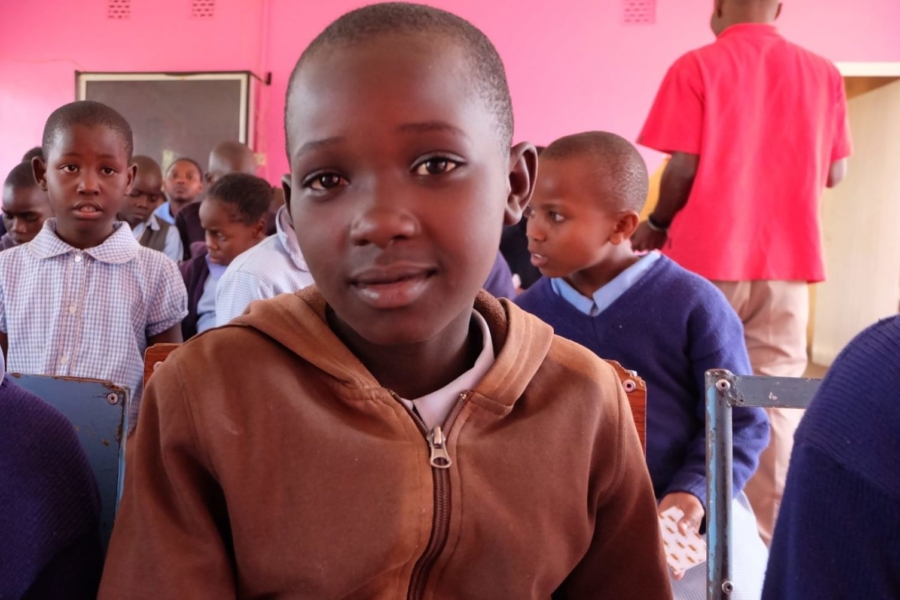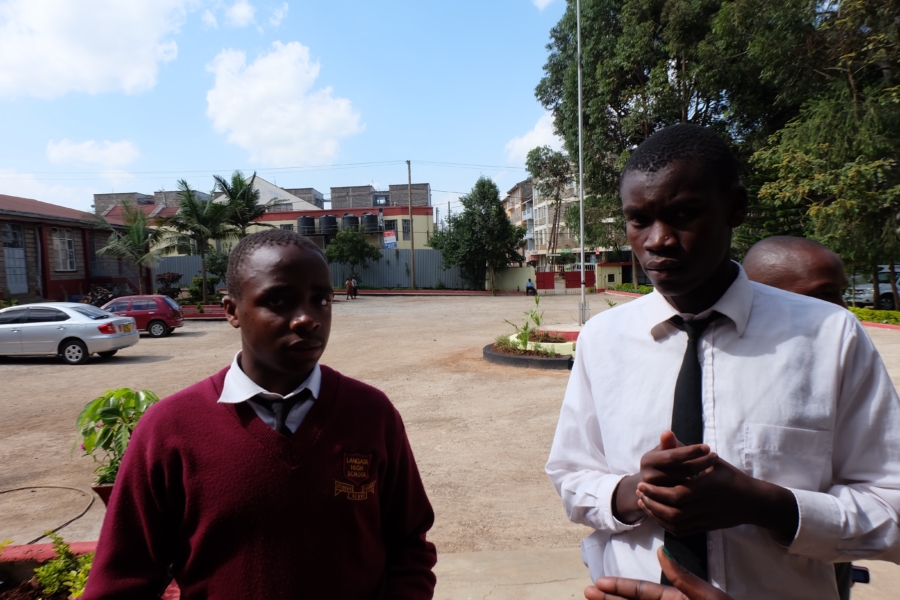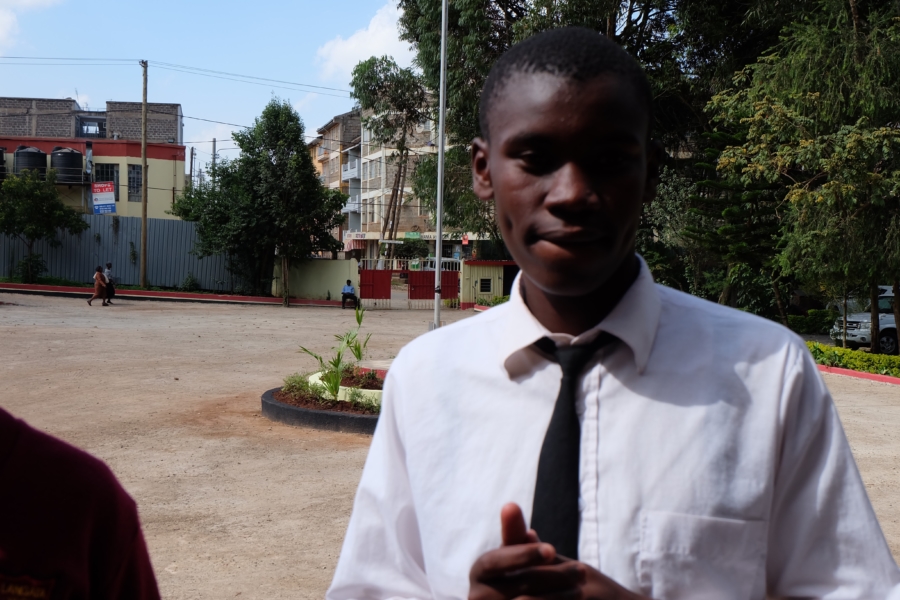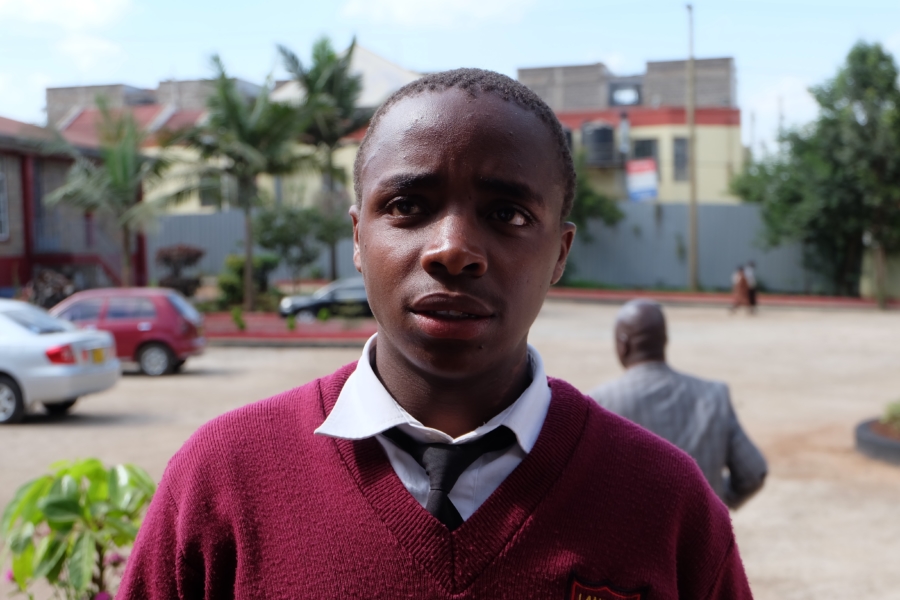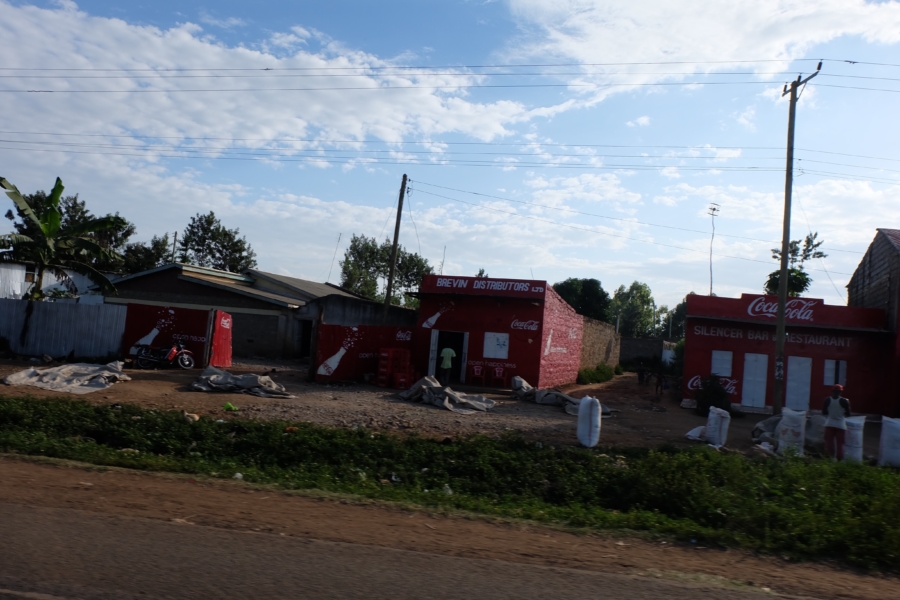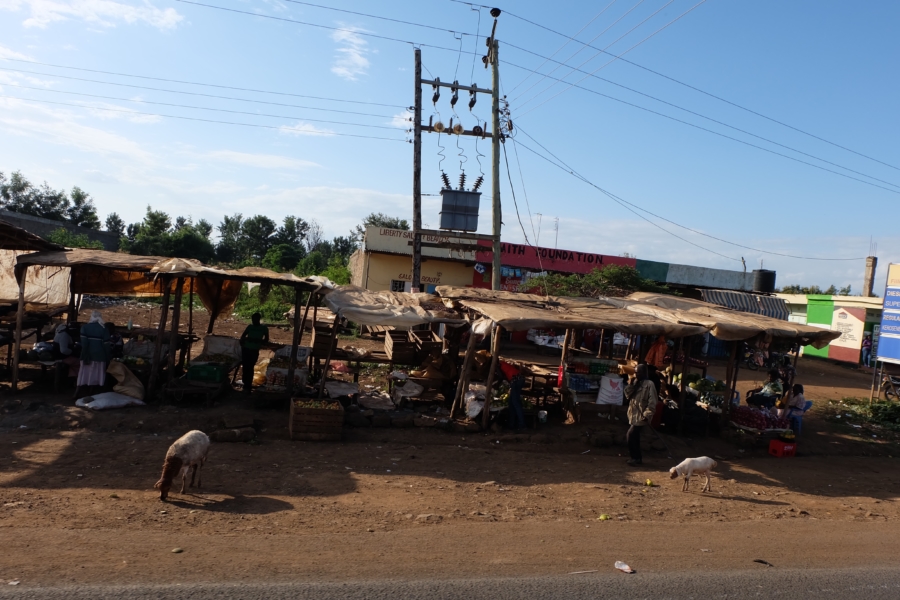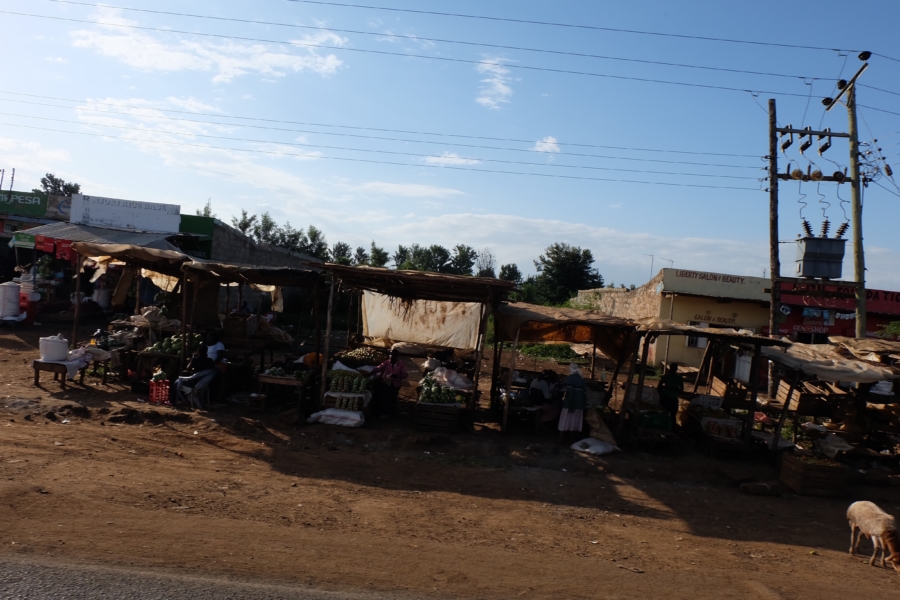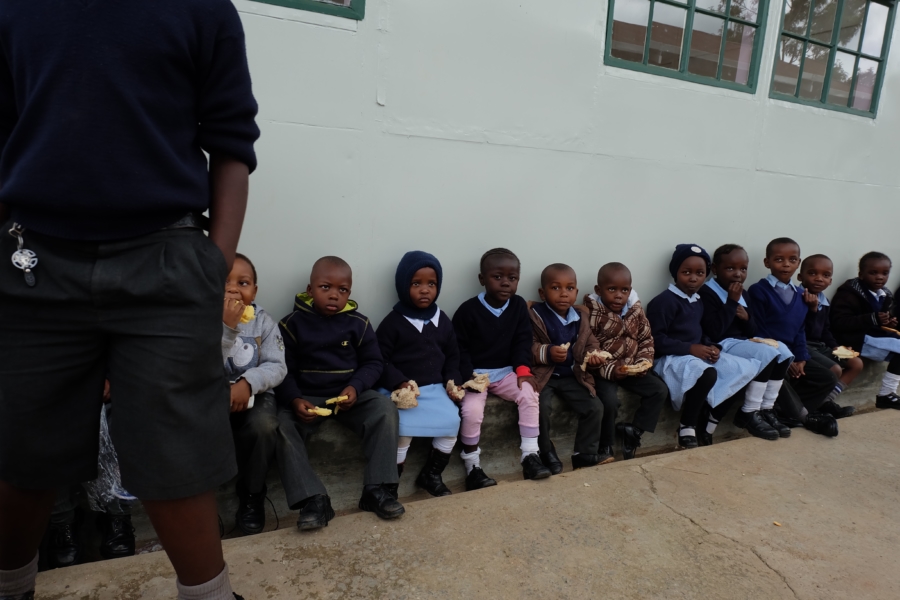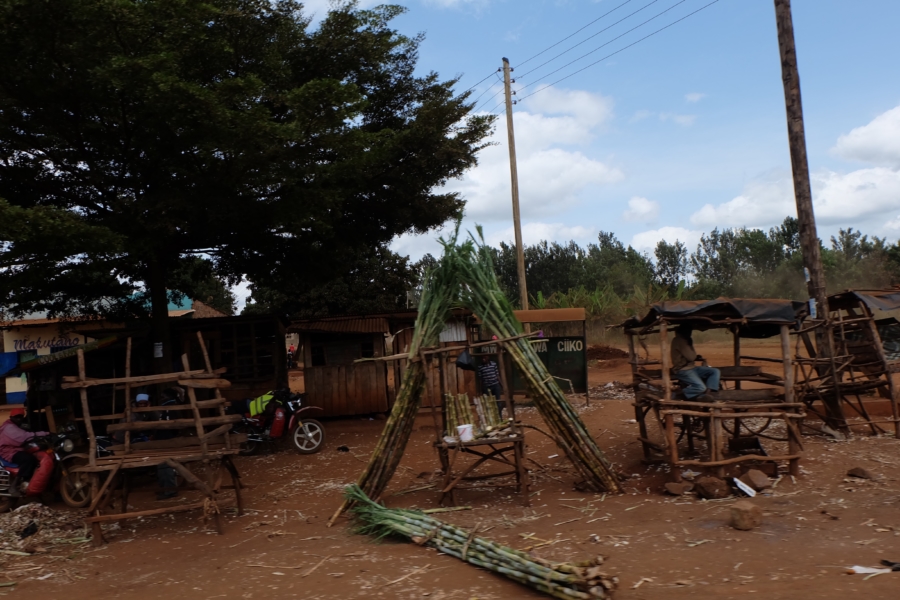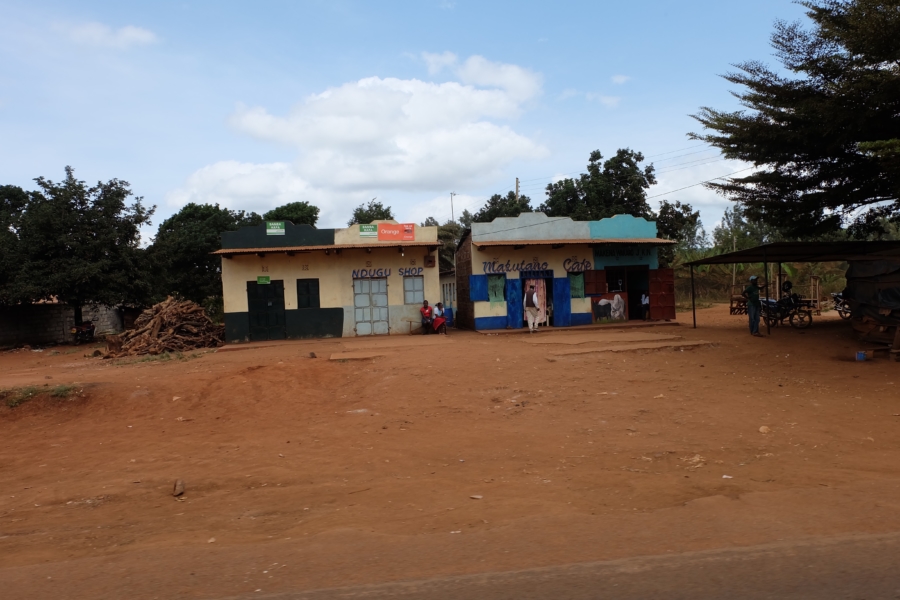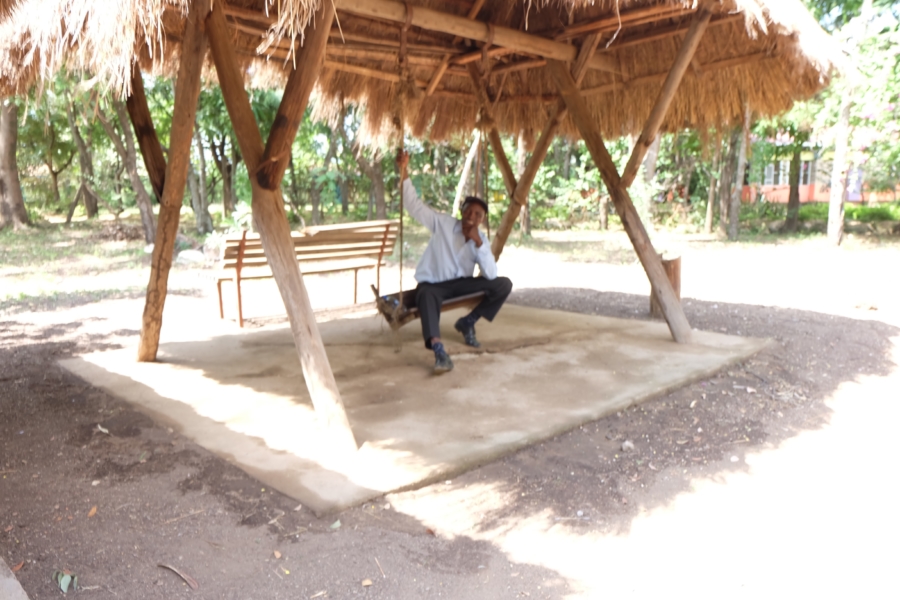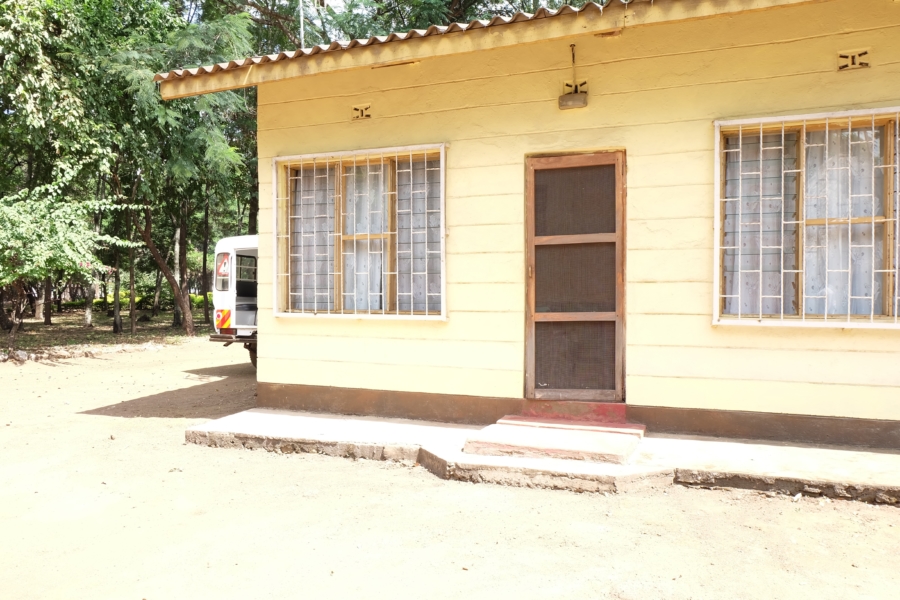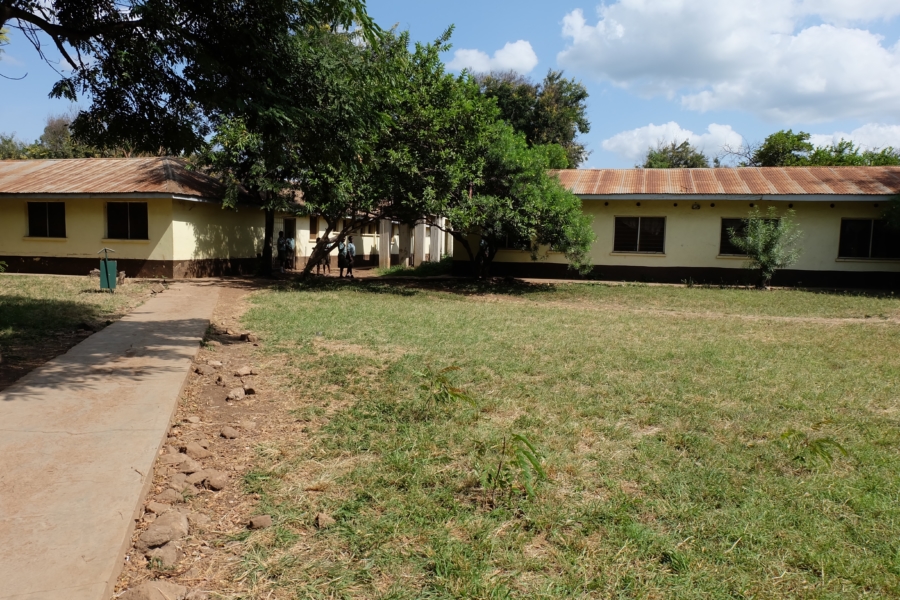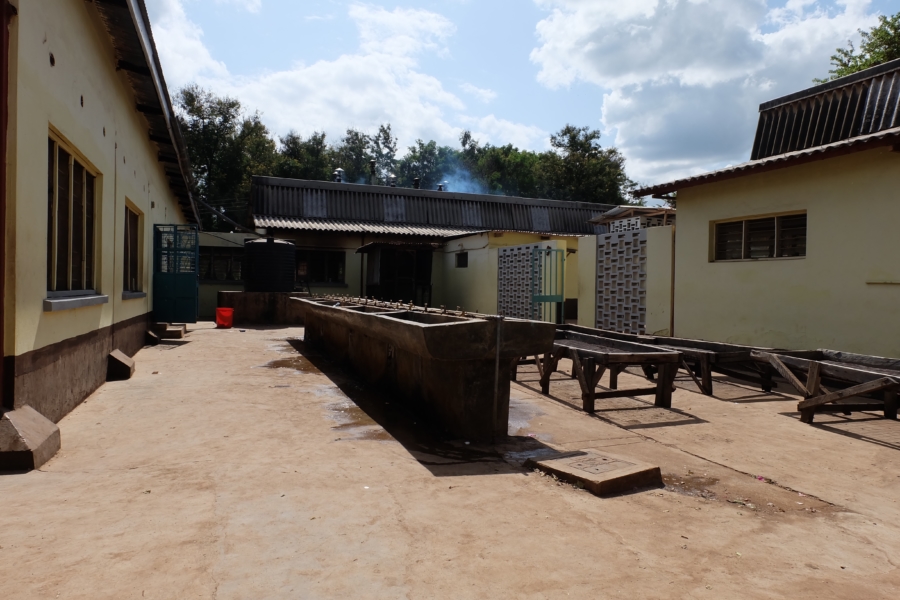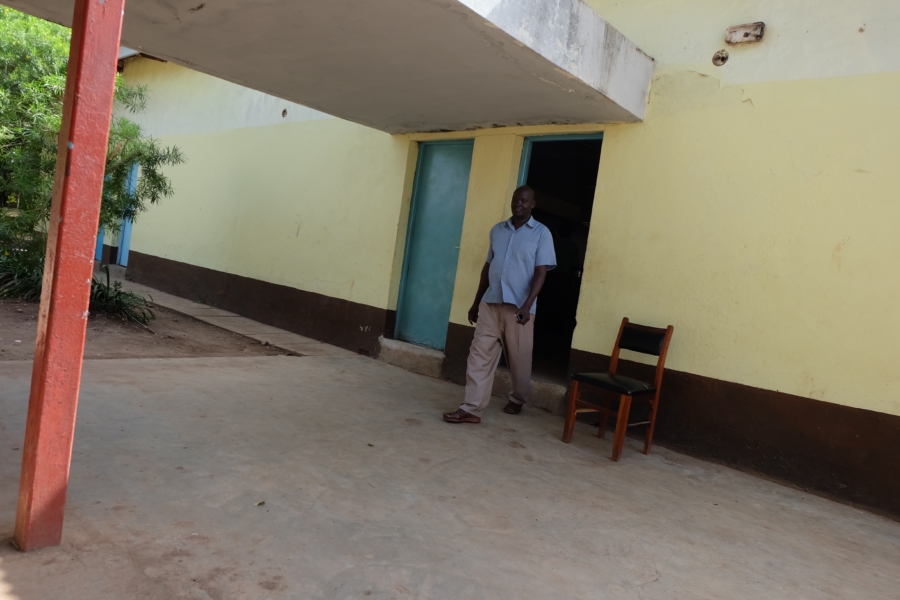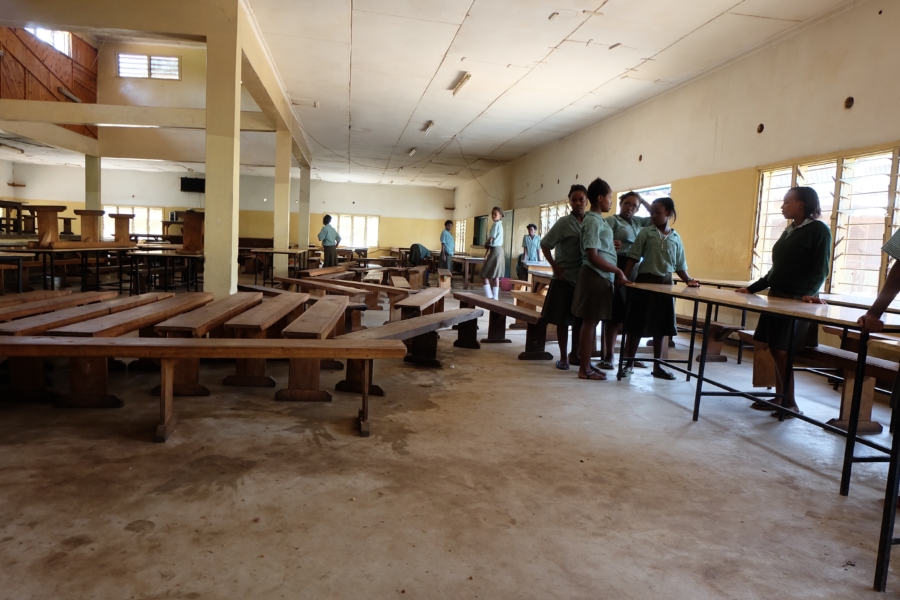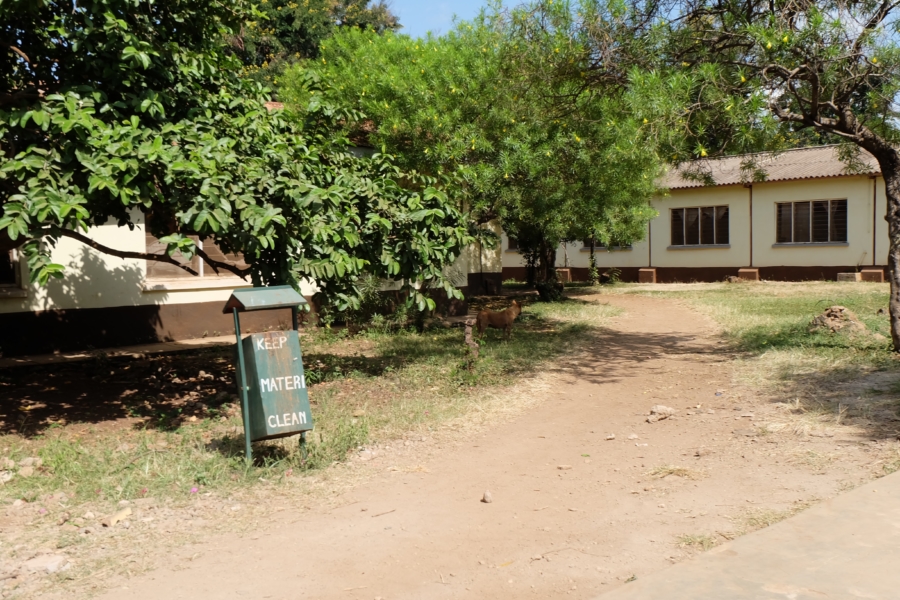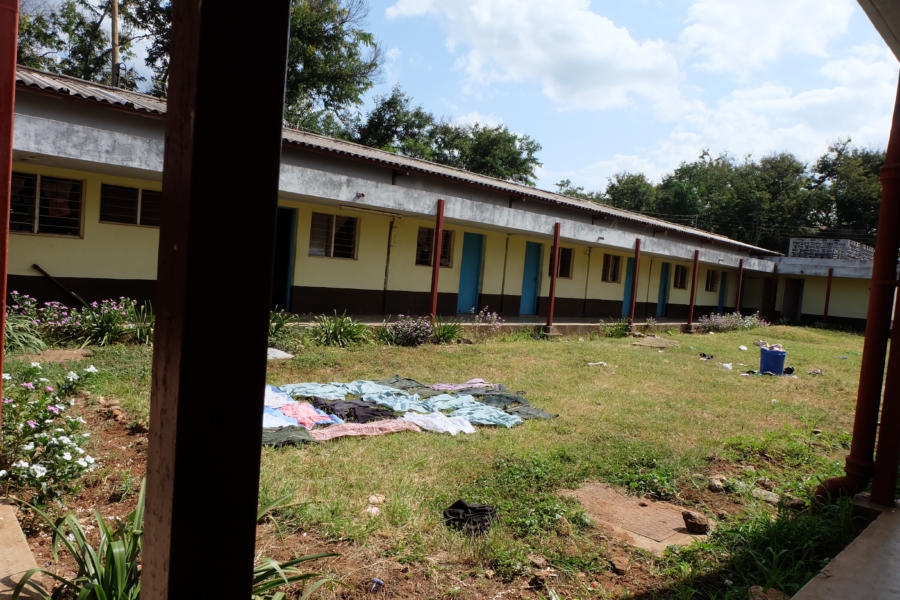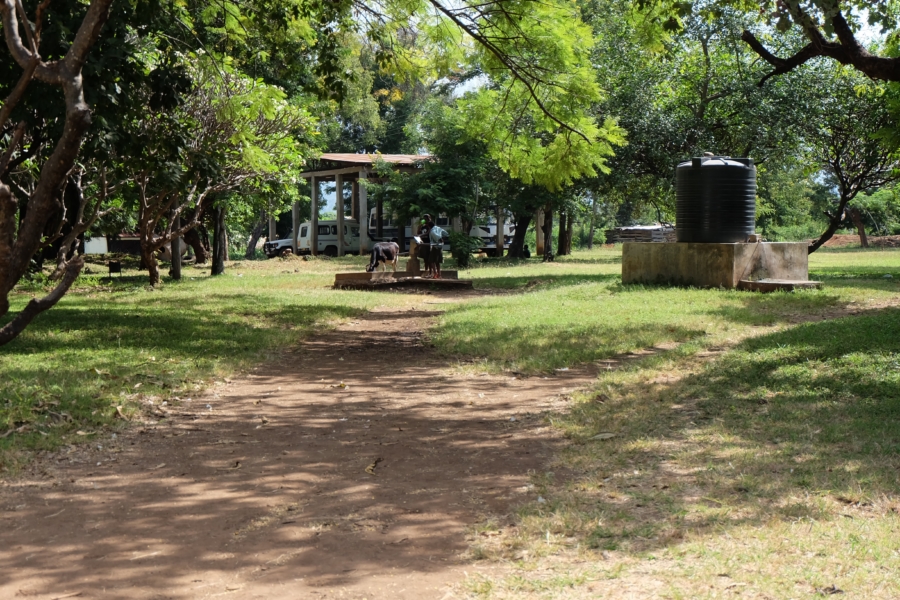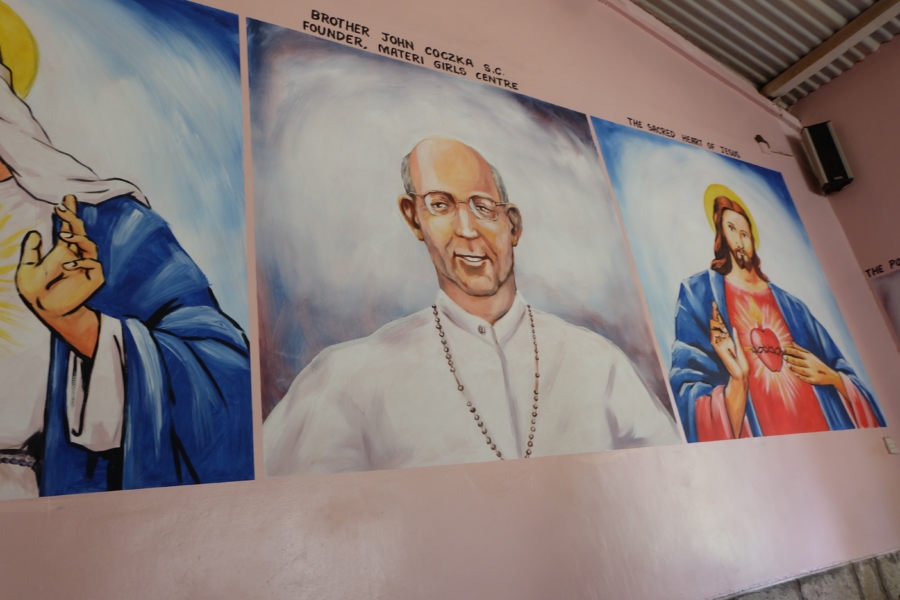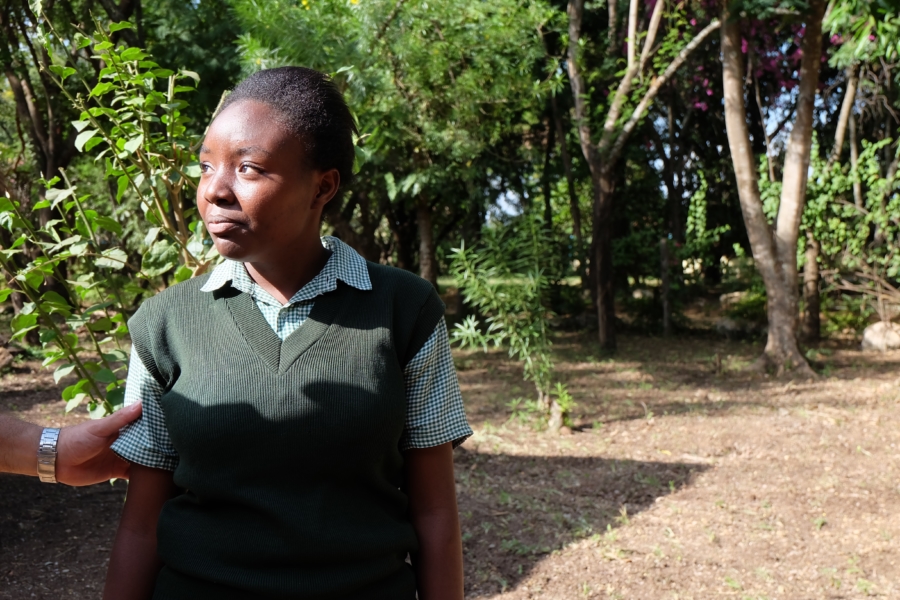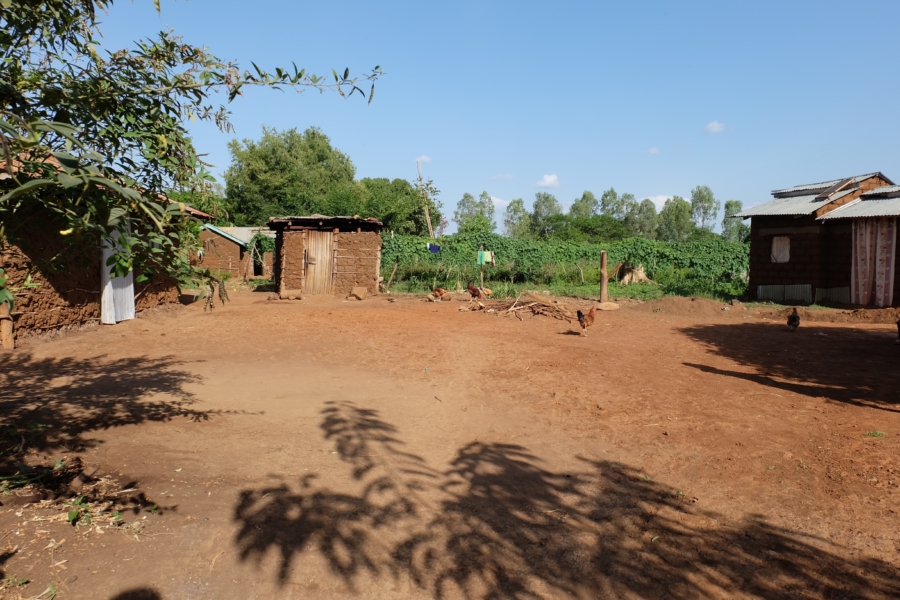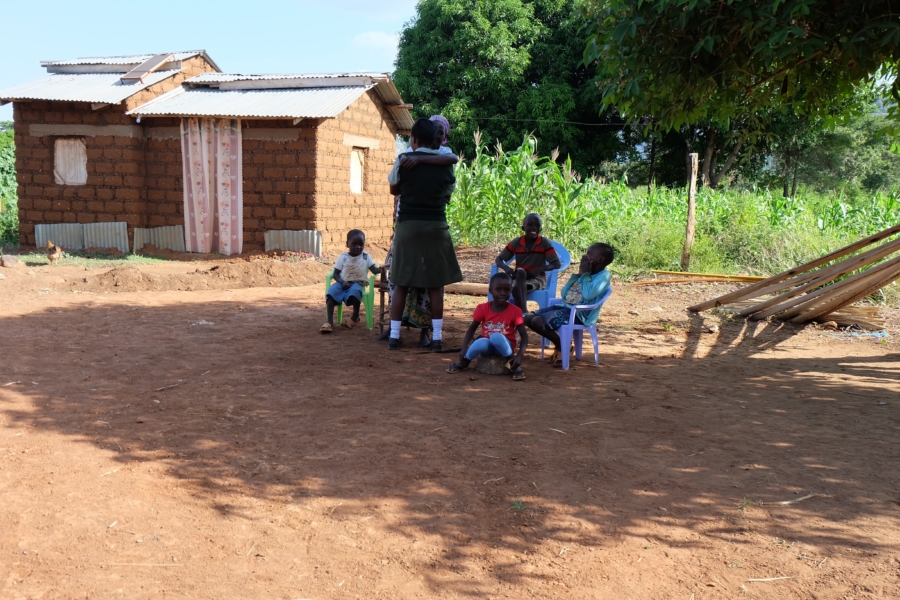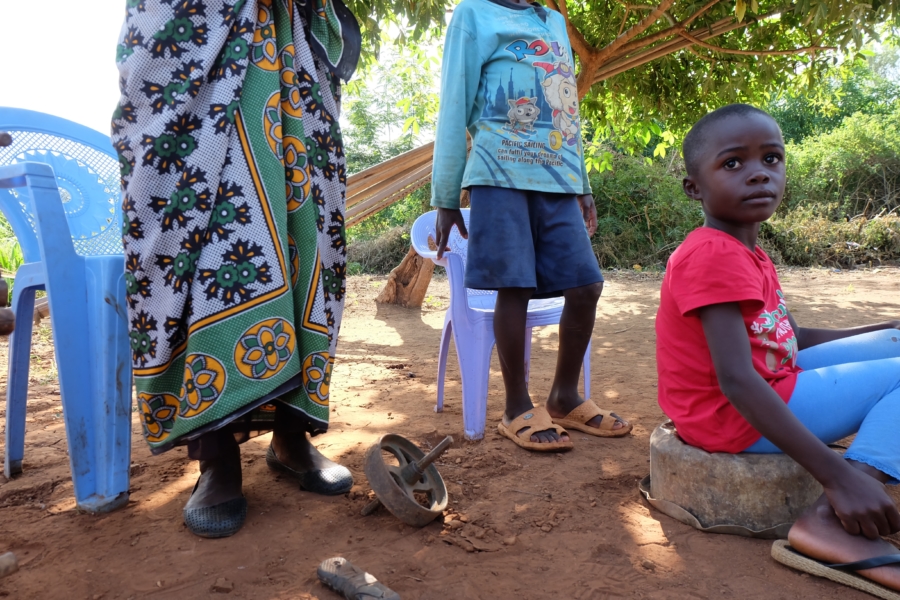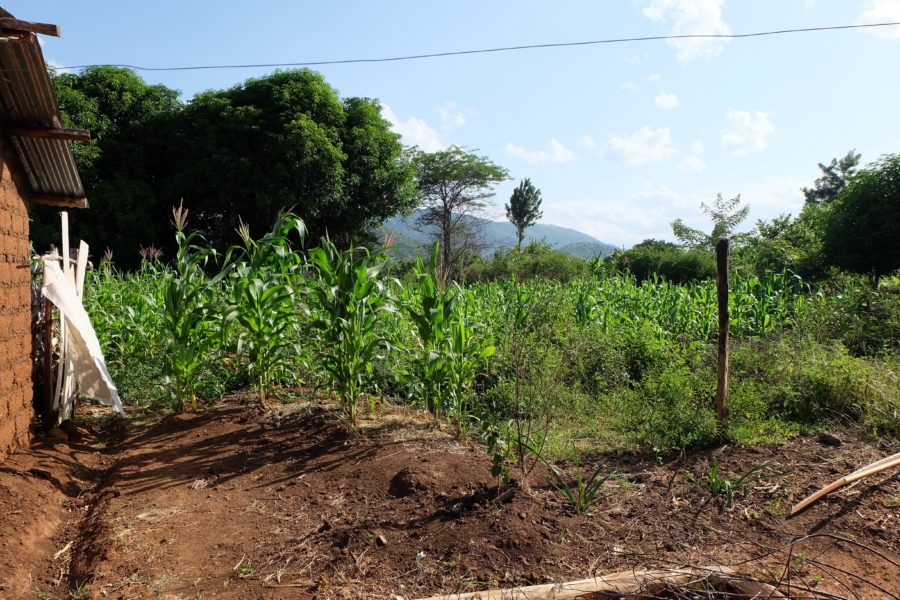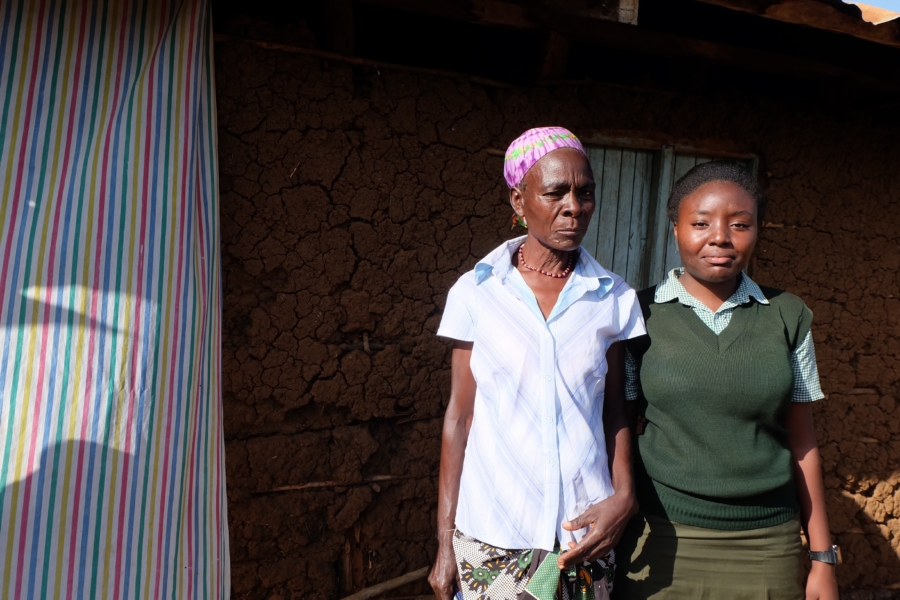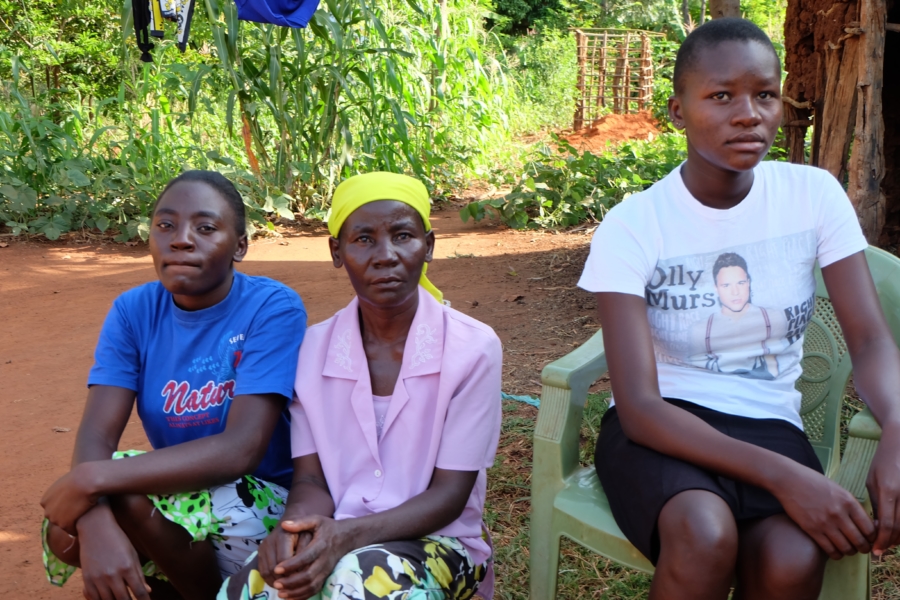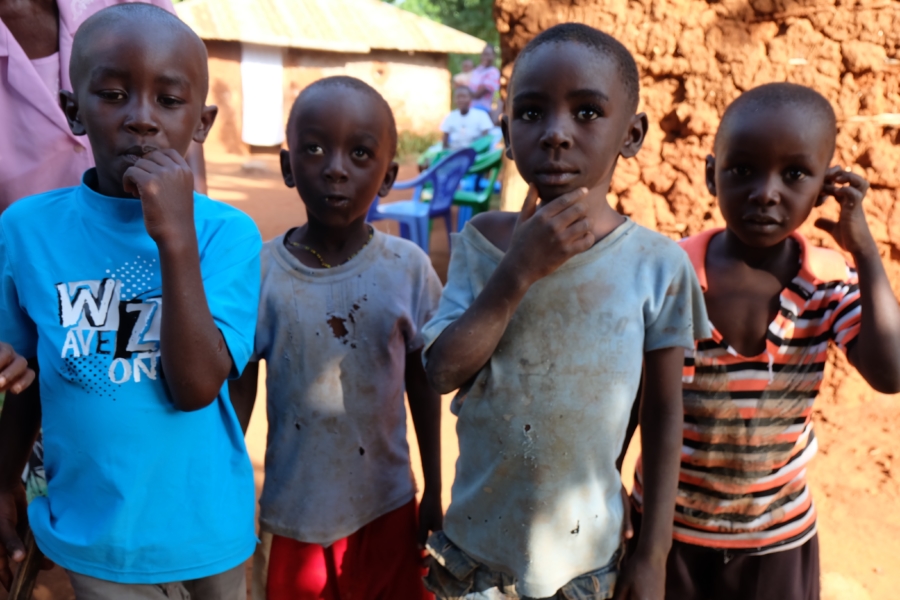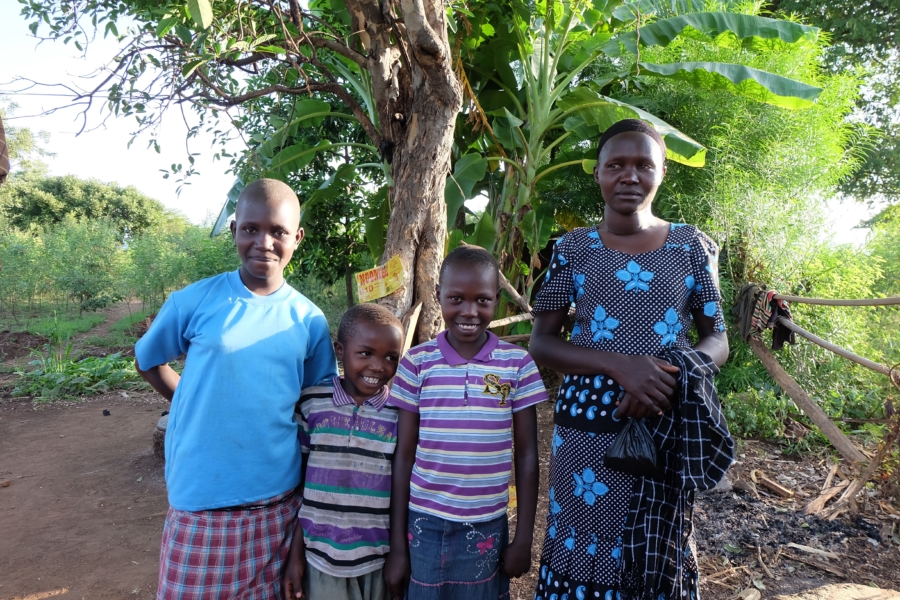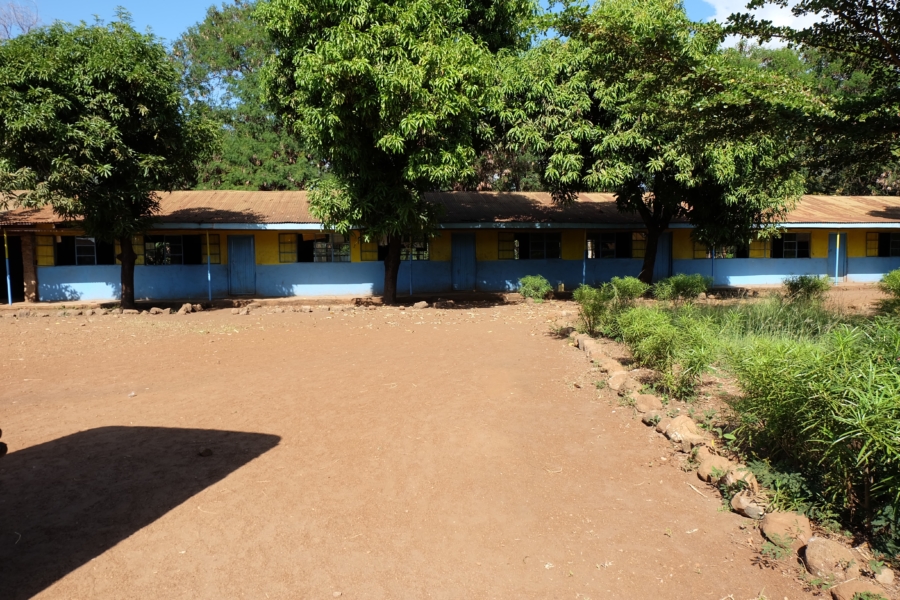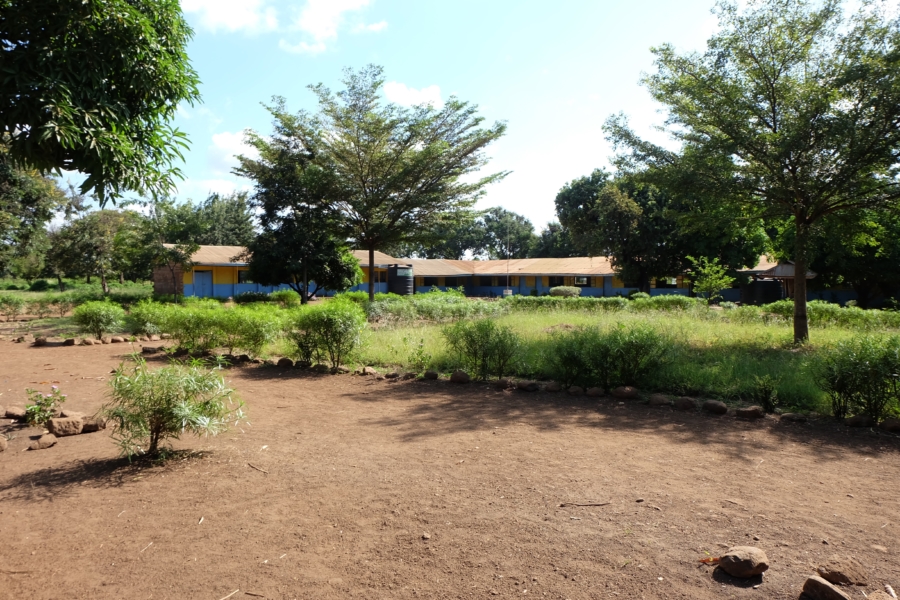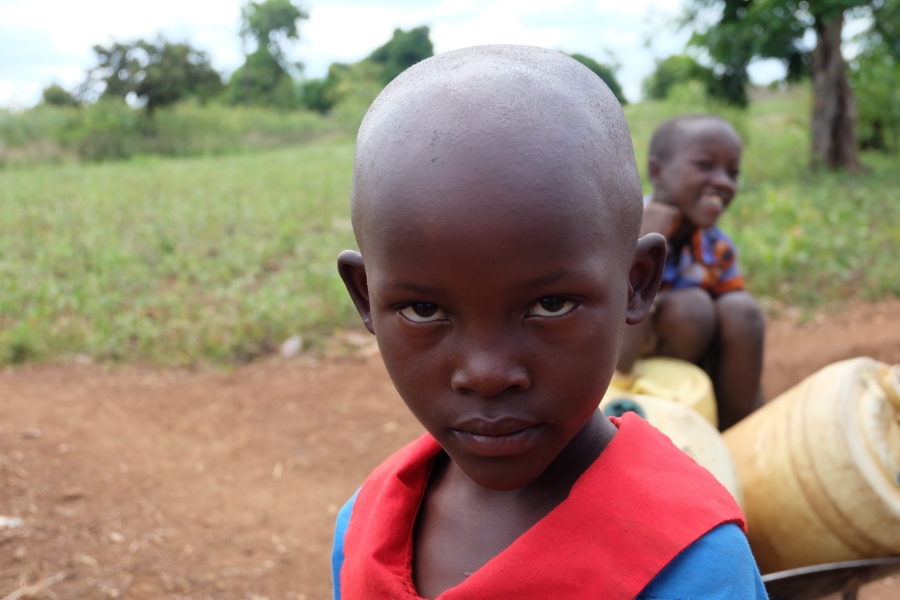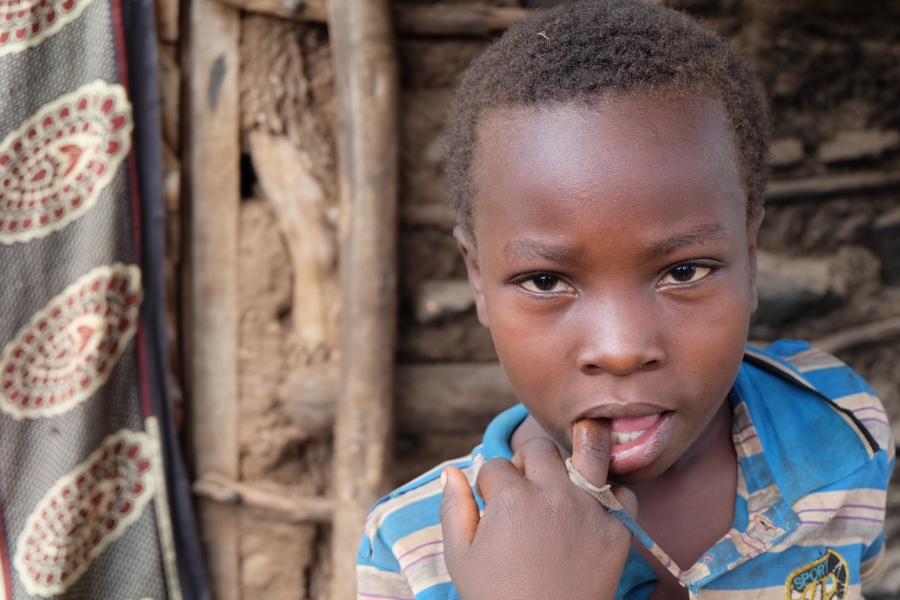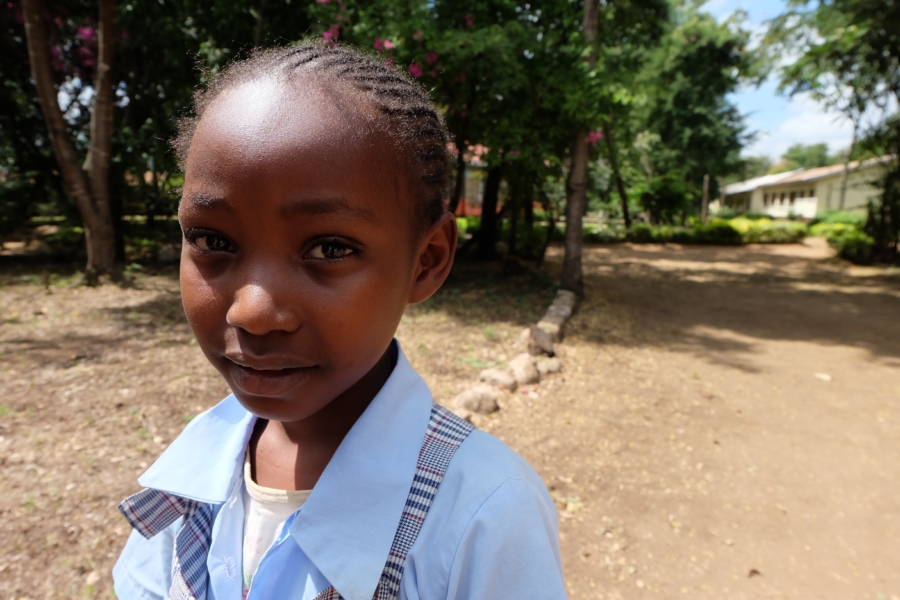In El Salvador, children have two choices: try as hard as they can to stay in school or submit to the constant pressure to join neighborhood gangs. Organized crime is rife in El Salvador, and recruitment starts at an early age, when kids are at their most vulnerable. Often, their parents are working and the children are home alone—that’s when gang culture starts to come knocking, angling for loyalty and increasing their numbers.
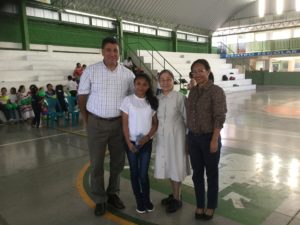
Luis is pictured with our volunteer coordinator and some of our sponsored children.
When parents are involved in their children’s day-to-day lives, they’ll have some control over their child’s activities. But that can’t always be the case, and that’s why programs like the Marillac secondary school are often the only force helping children resist an easier, but much more dangerous, way to make a living.
Opening doors to a better life
The Sisters who run Marillac focus on expanding their reach and increasing their offerings for the poor families that surround them. They recognize that children not only need education, a safe space to learn, and psychological support, but also activities that foster motivation, independence, and a sense of community. To further these goals, the sisters have put their heads together and dreamed up new facilities that sponsors have helped them become reality. A new gymnasium, a computer lab, and even a robotics program. Children Incorporated has been proud to help with the security for the lab, and even prouder to watch as the children find joy in something that will help them stay focused on a better life for both them and their families.
They recognize that children need education, a safe space to learn, and psychological support, but also the activities that foster motivation, independence, and a sense of community.
One Children Incorporated-sponsored student, in particular, has embodied this spirit of using her gifts to help her community. Sofia’s adventure began as “just a student of ours who likes to sing,” as Luis describes it. After losing her father a year prior, Sofia was having trouble coping.
“She was so sad,” remembers Luis. “You could see how sad this poor little girl was. And she would sing this famous Spanish sad song, and it was powerful. Her voice was incredible.”
Members of the community began to promote Sofia in the area, and she was invited to participate on a local television program. The producers noticed her skill at singing, dancing, and leading other children, and asked her if she would like her own show, now a popular children’s musical hour.
The local radio station followed suit, and Sofia now also hosts a talk show for children. “She’s so motivated to do well,” says Luis. “She comes back and coordinates these dances at the school, and shows everyone how to do the dances—she’s always involved in this, that, and the other.”
Because of donations to Children Incorporated, Sofia has been able to afford Marillac’s school fees, and it’s opened up opportunities for her in ways she may never have experienced. Now, she’s on track to become an El Salvador success story, and she’s inspiring other children to express themselves while carrying on cultural traditions. To Luis, that’s a testament to the belief of Children Incorporated’s donors, who know that helping out one child can affect the lives of many.
***
HOW DO I SPONSOR A CHILD IN EL SALVADOR?
You can sponsor a child in El Salvador in one of three ways – call our office and speak with one of our sponsorship specialists at 1-800-538-5381, email us at sponsorship@children-inc.org, or go online to our donation portal, create an account, and search for a child in El Salvador that is available for sponsorship.

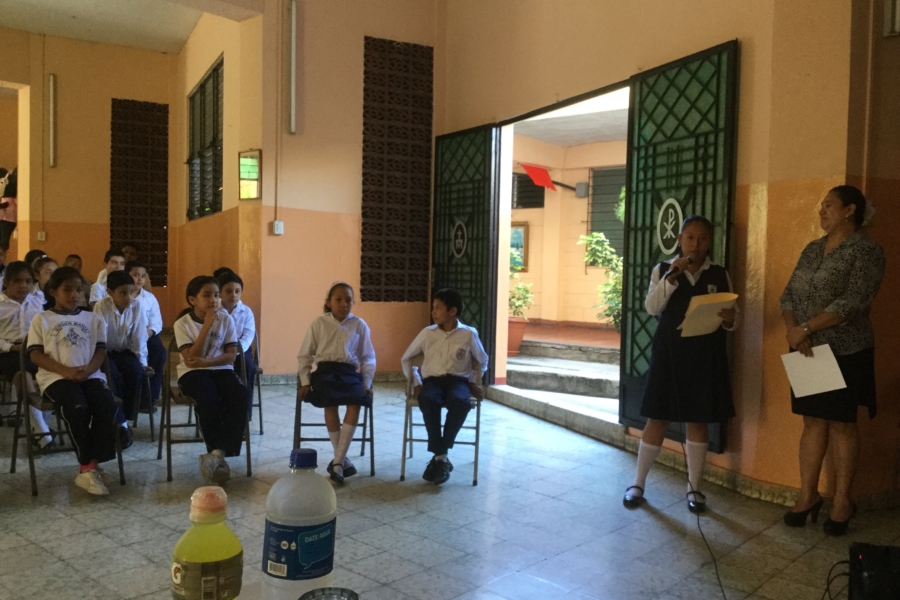
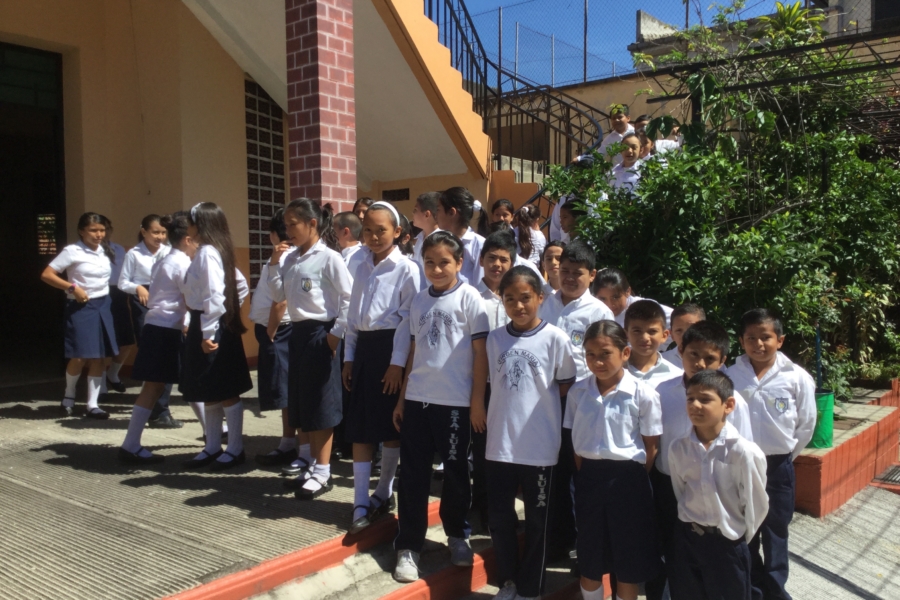
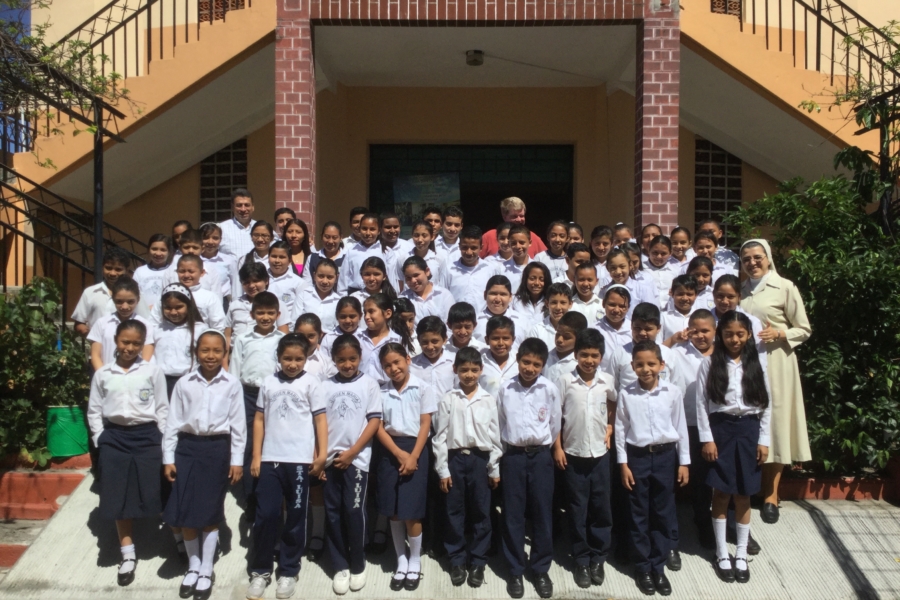
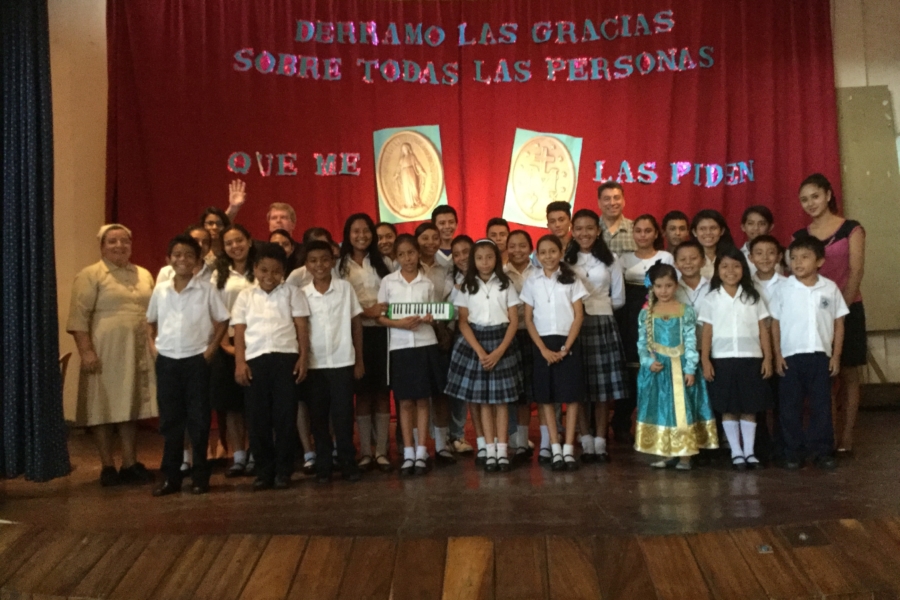
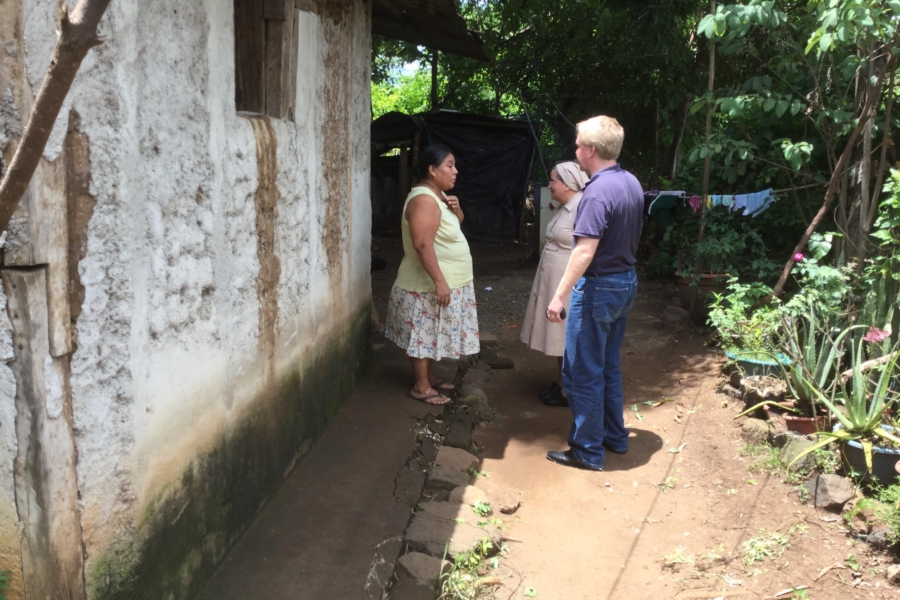
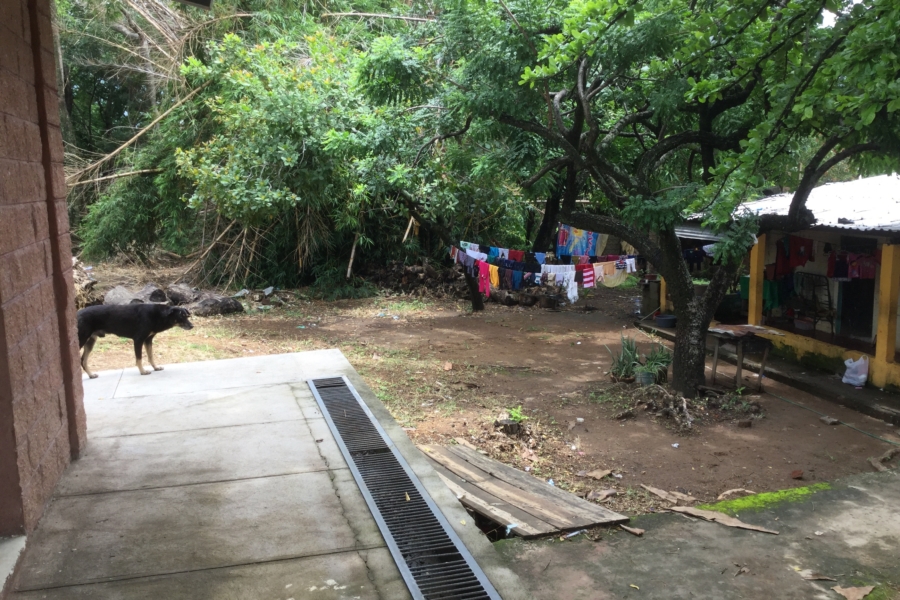
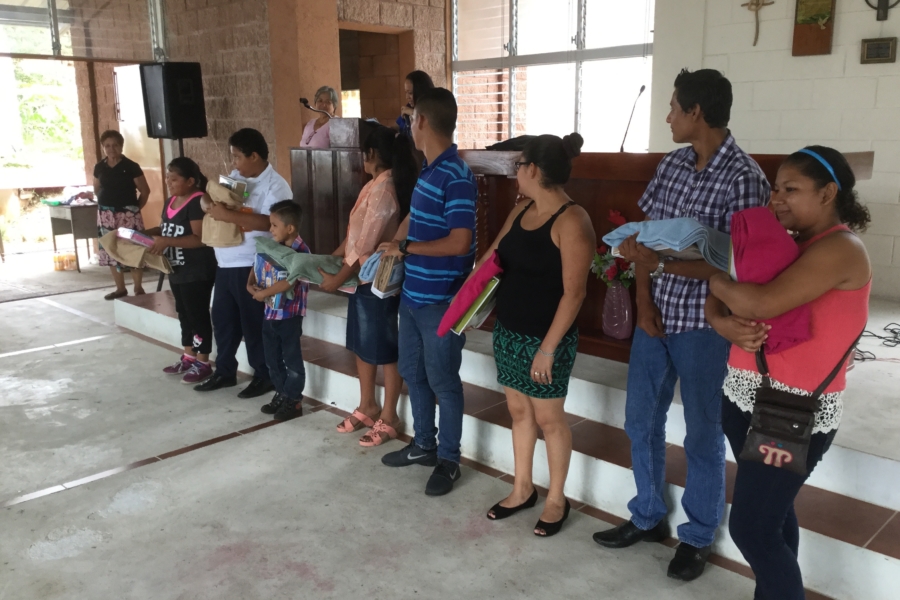
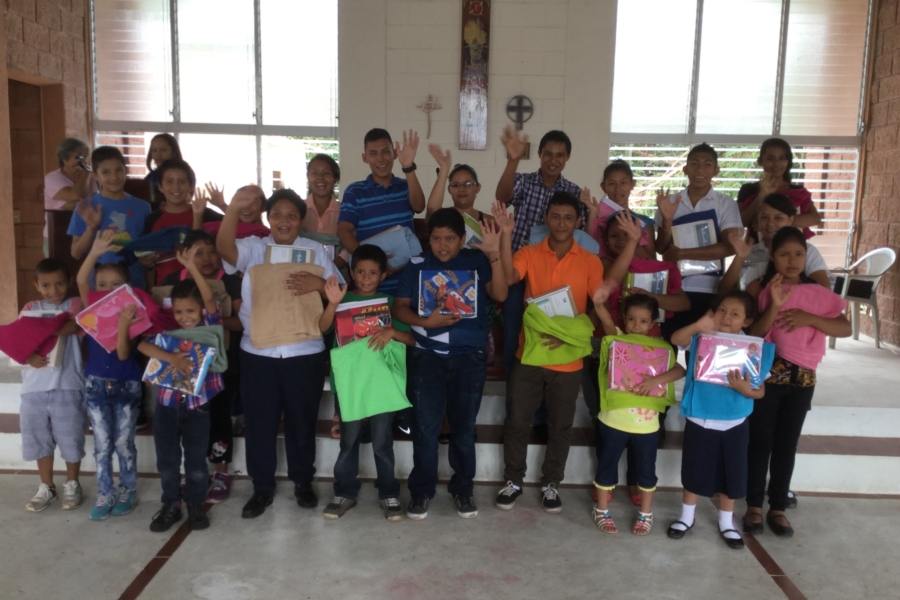
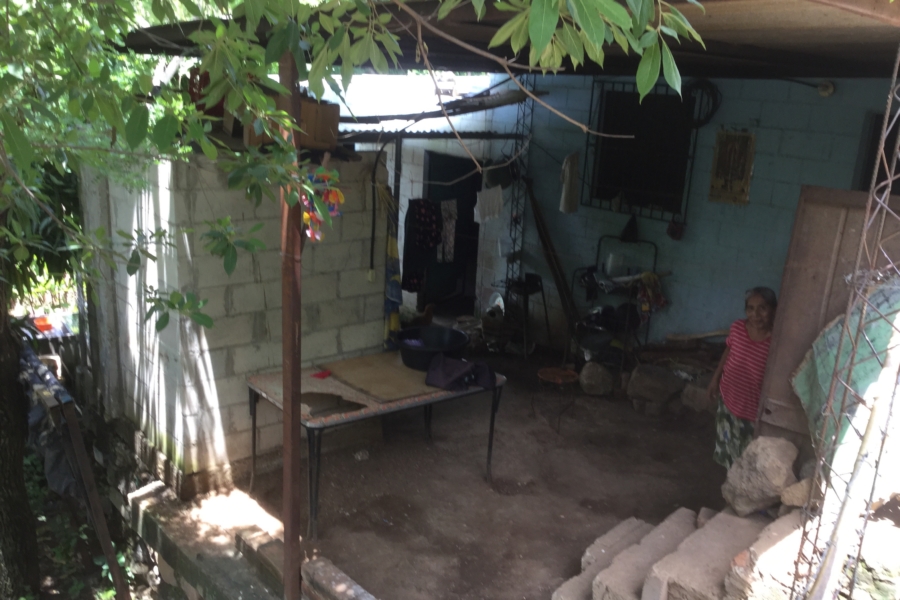
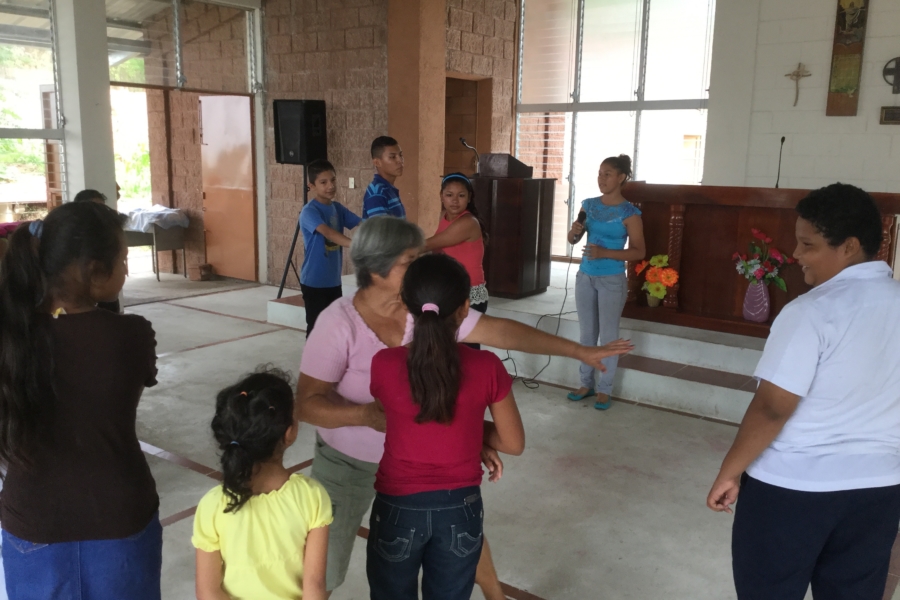
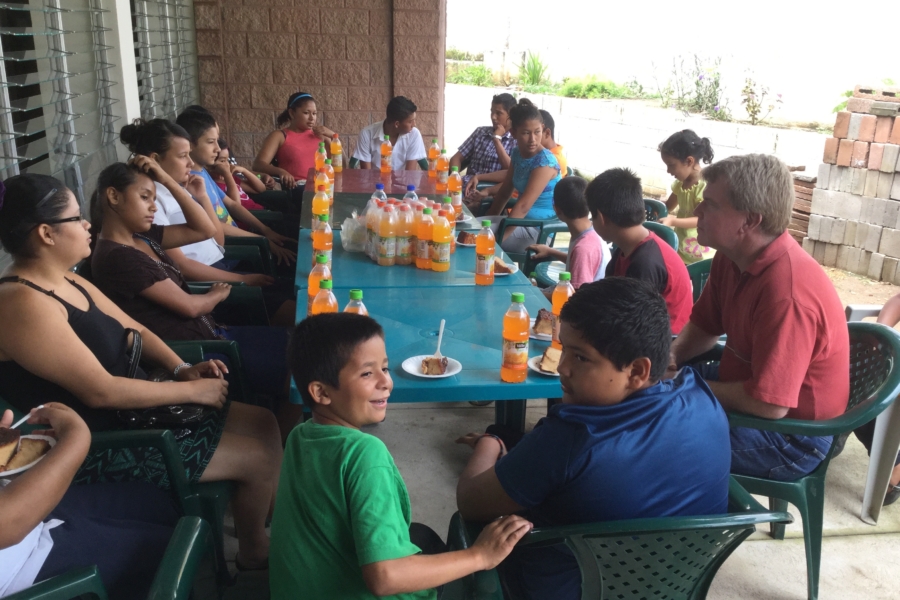
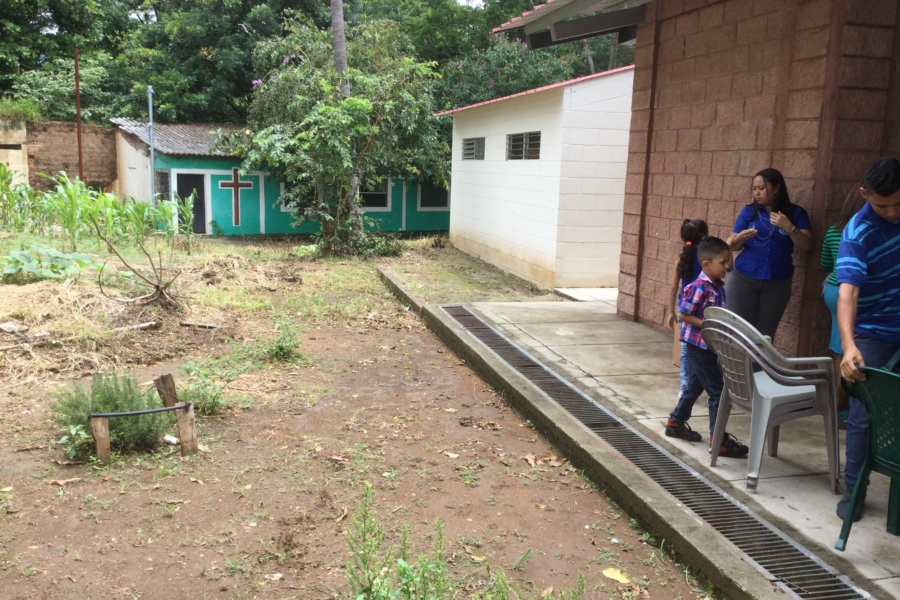
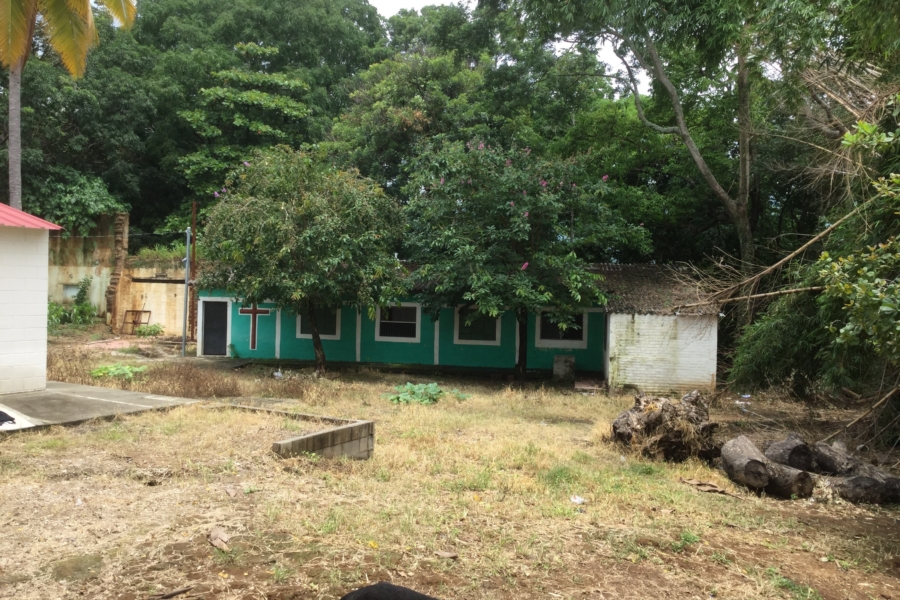
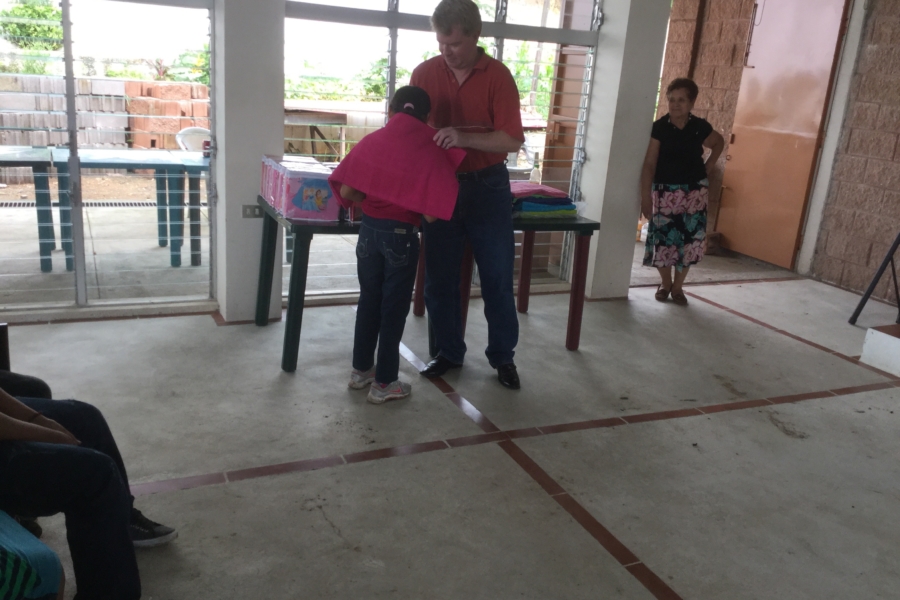
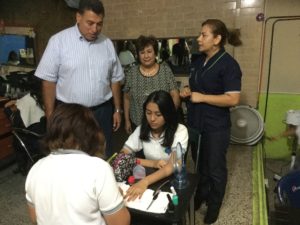
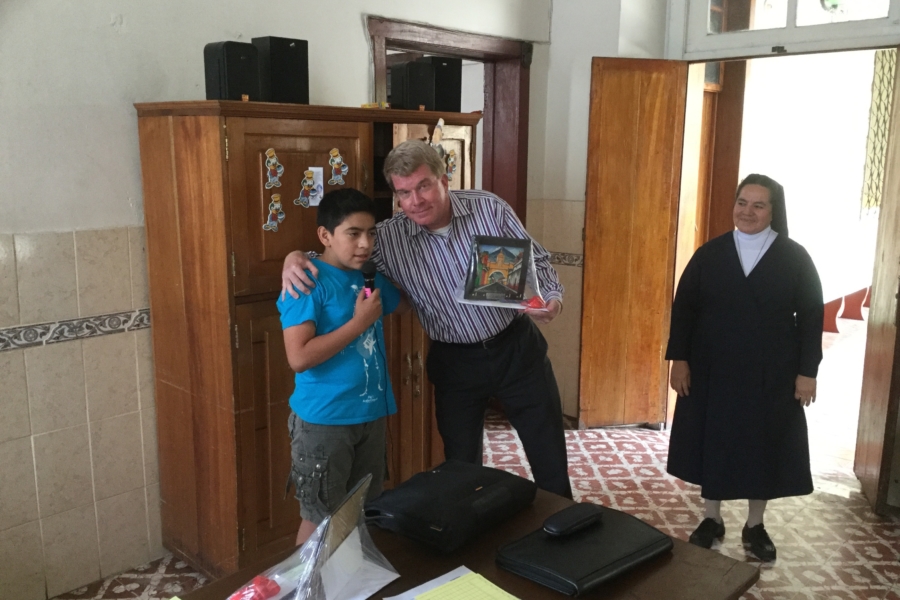
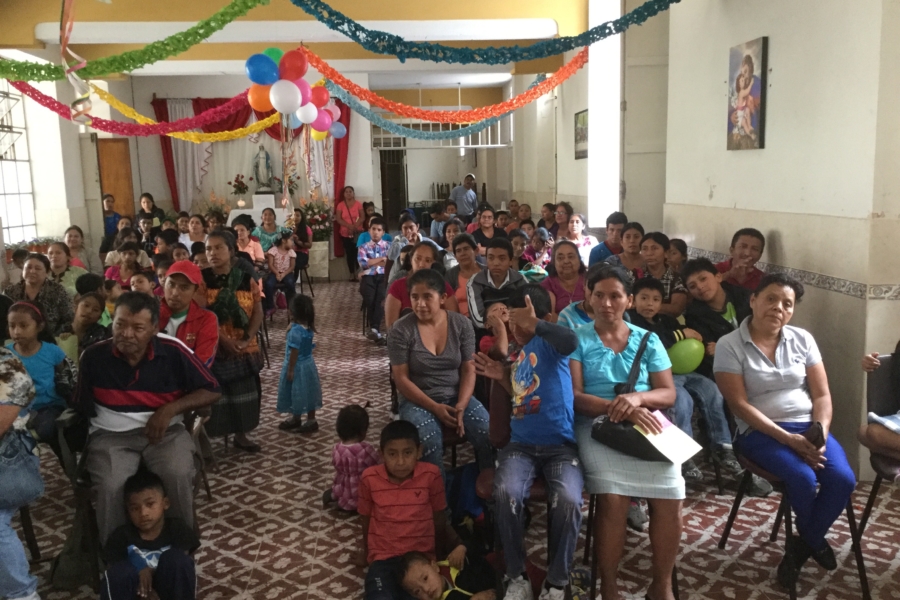
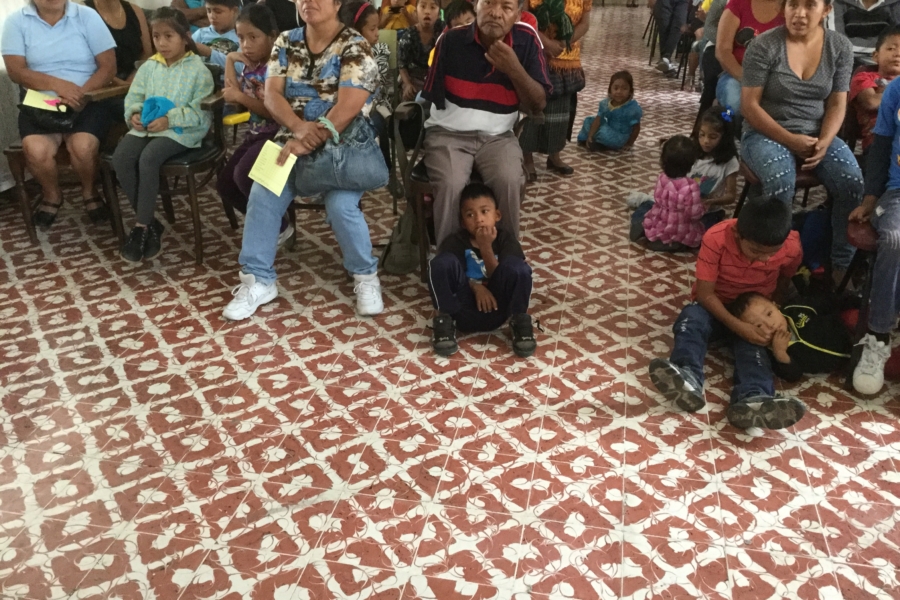
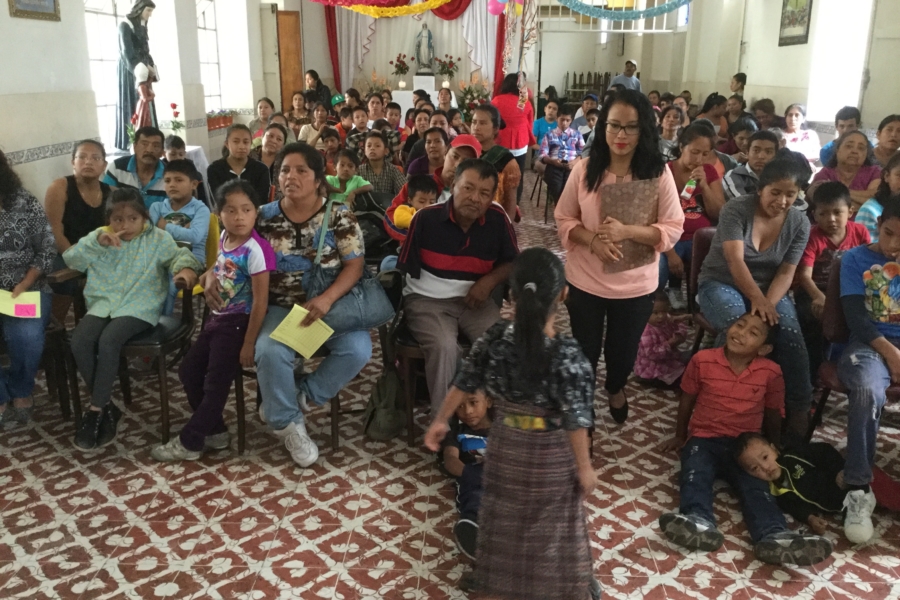
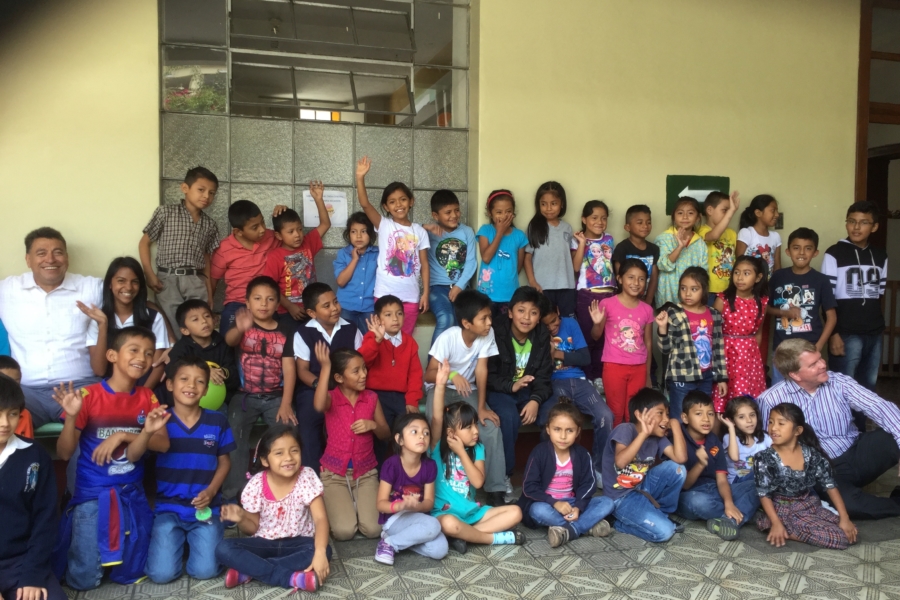
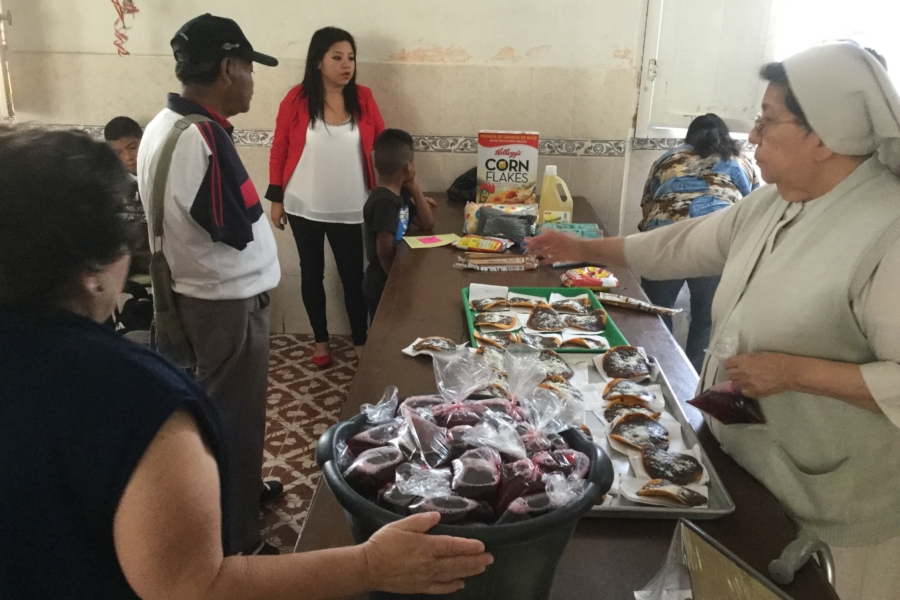
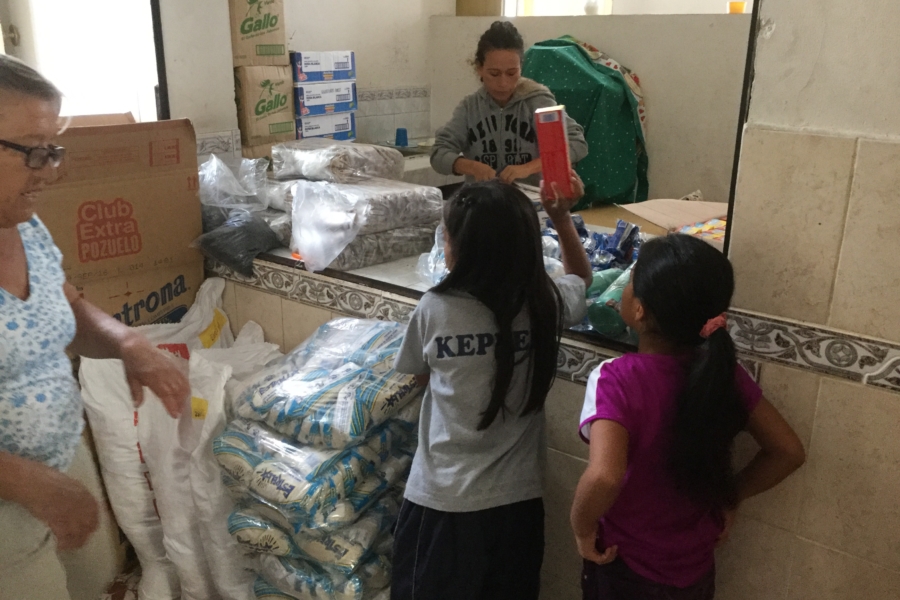
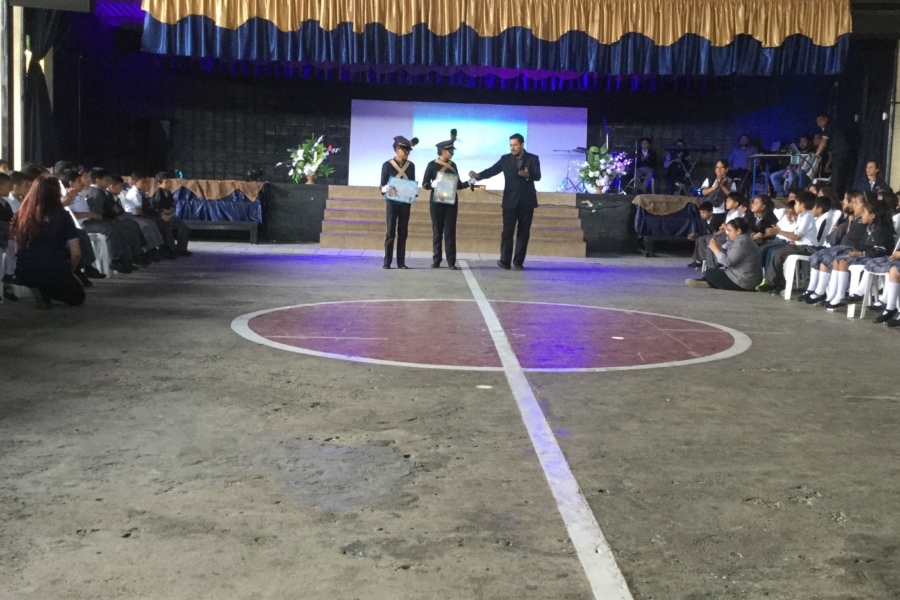
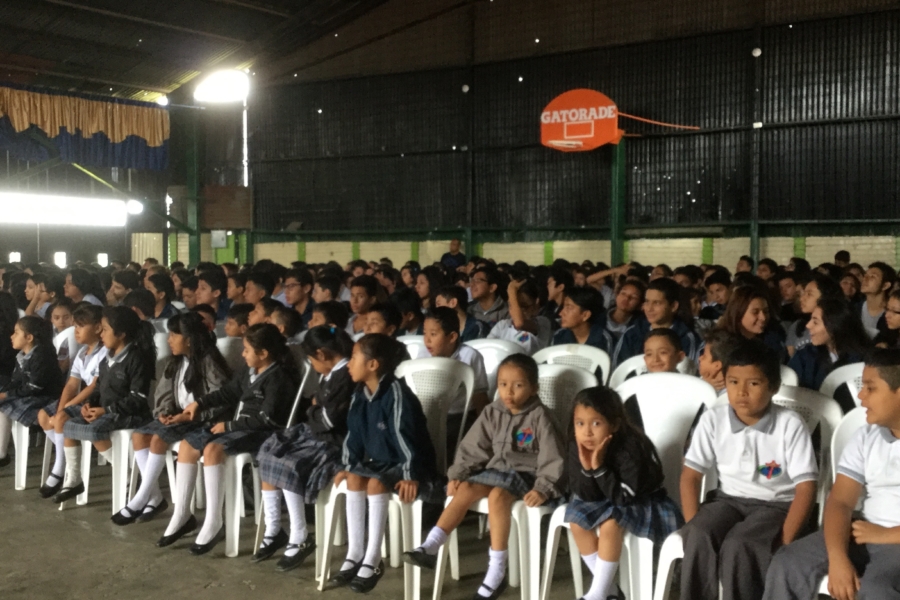
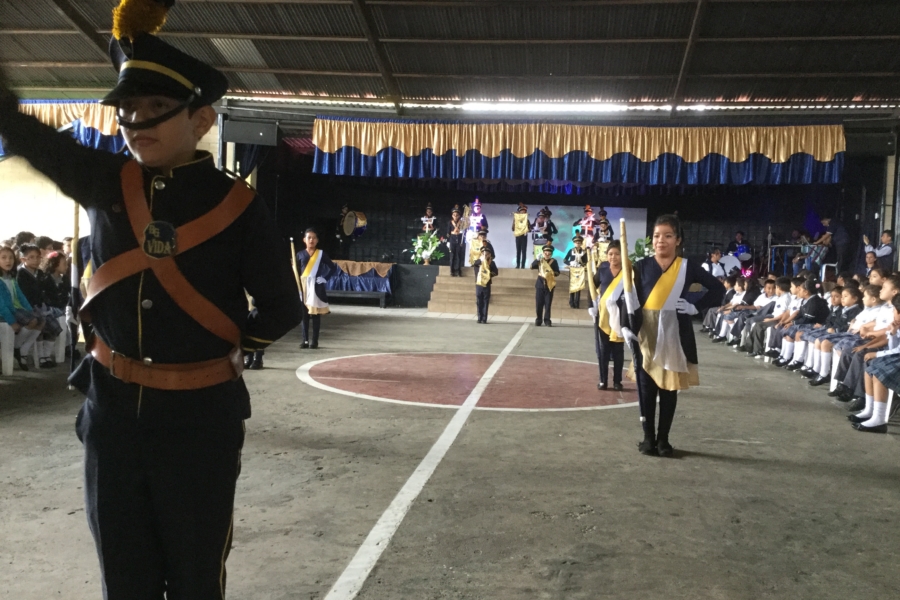
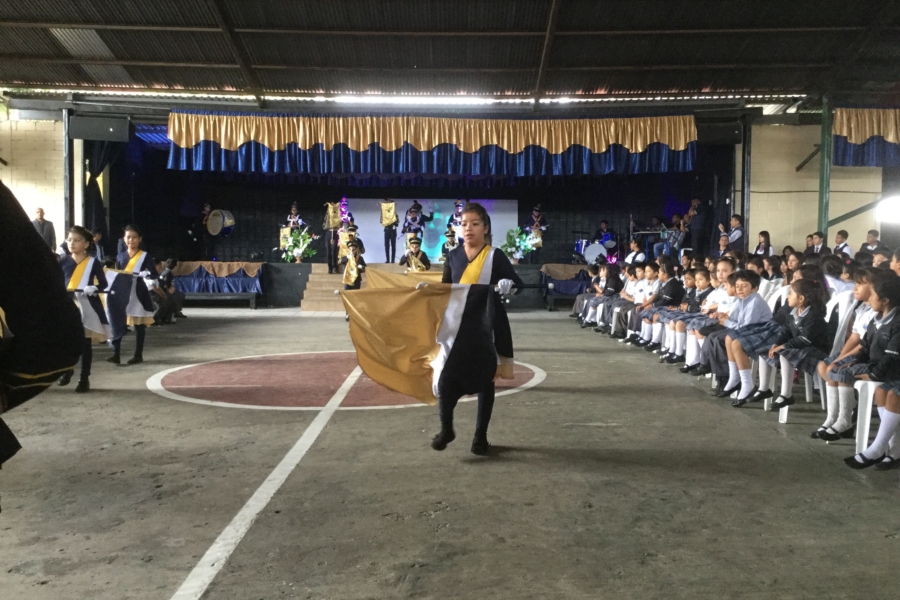

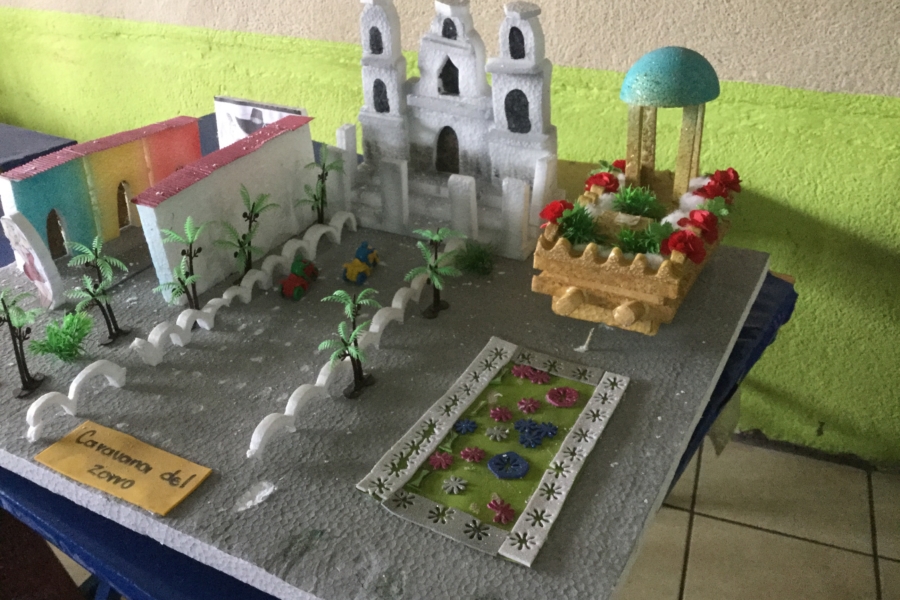
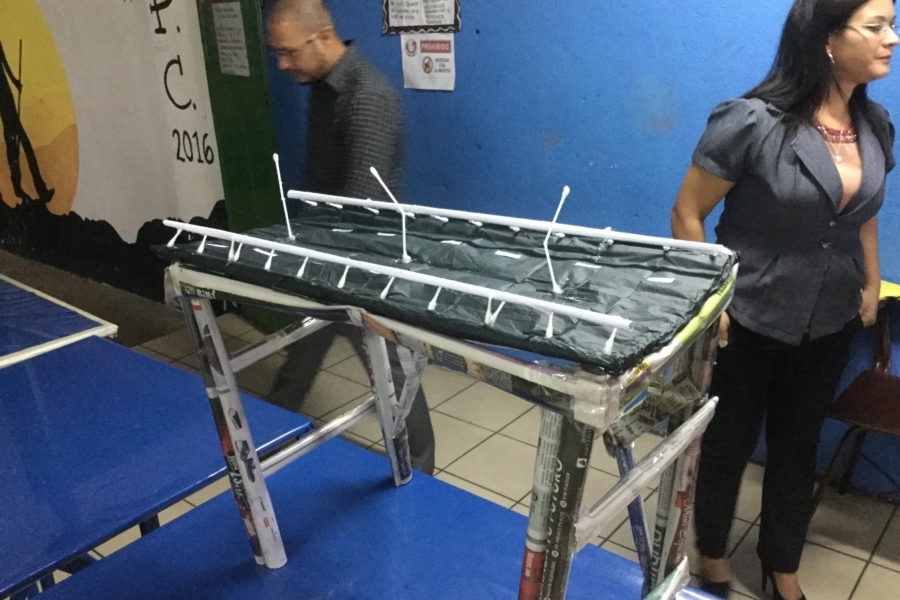
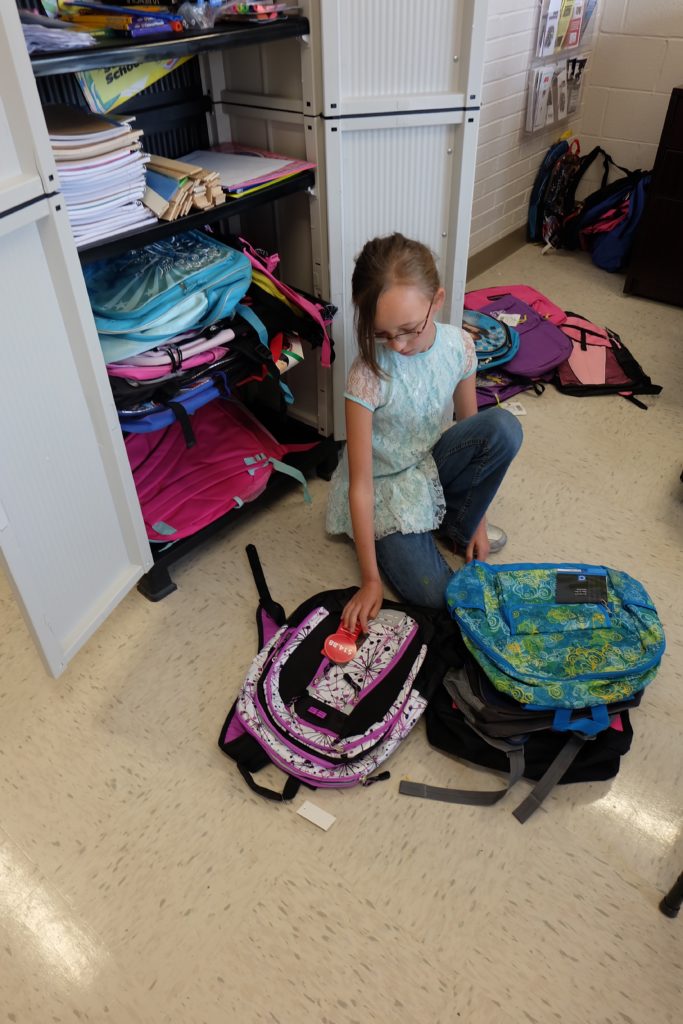
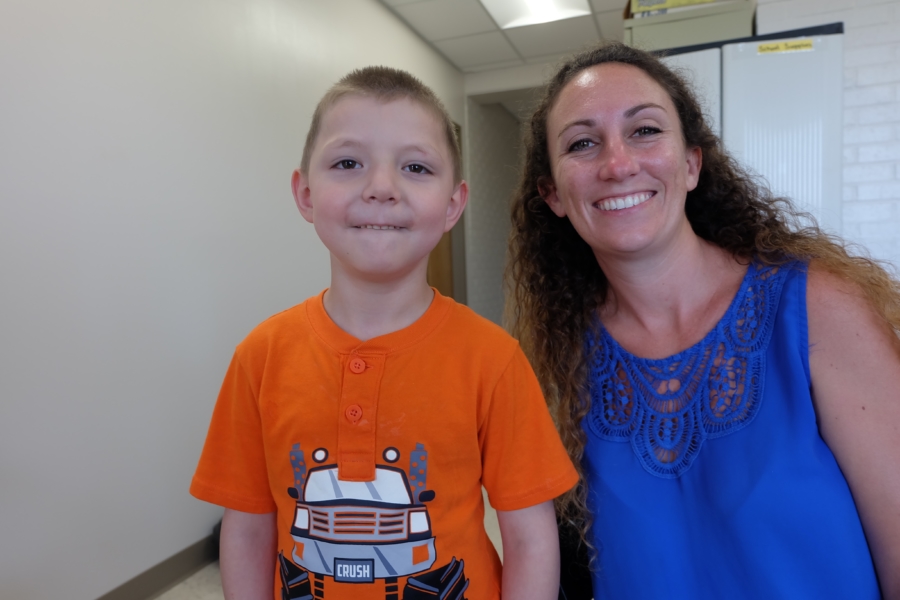
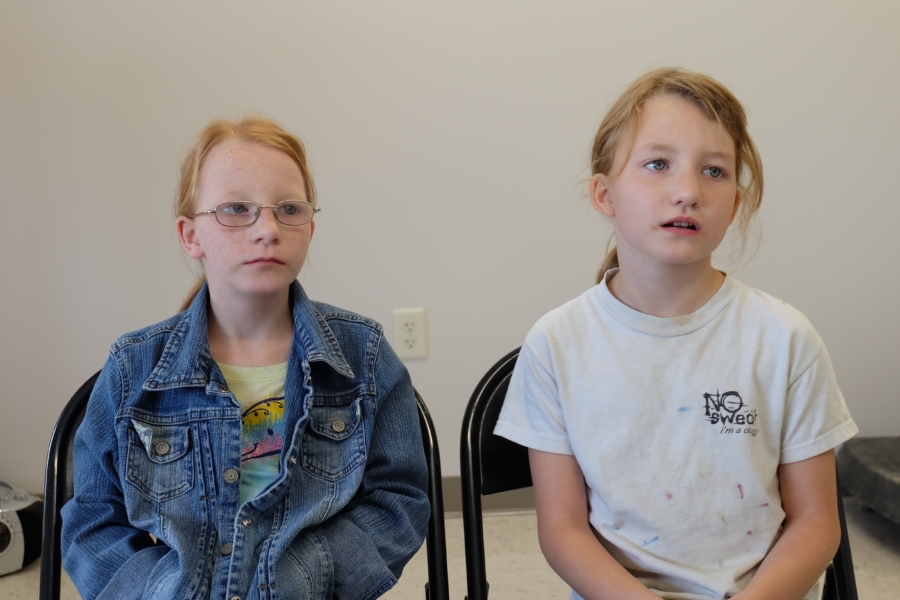
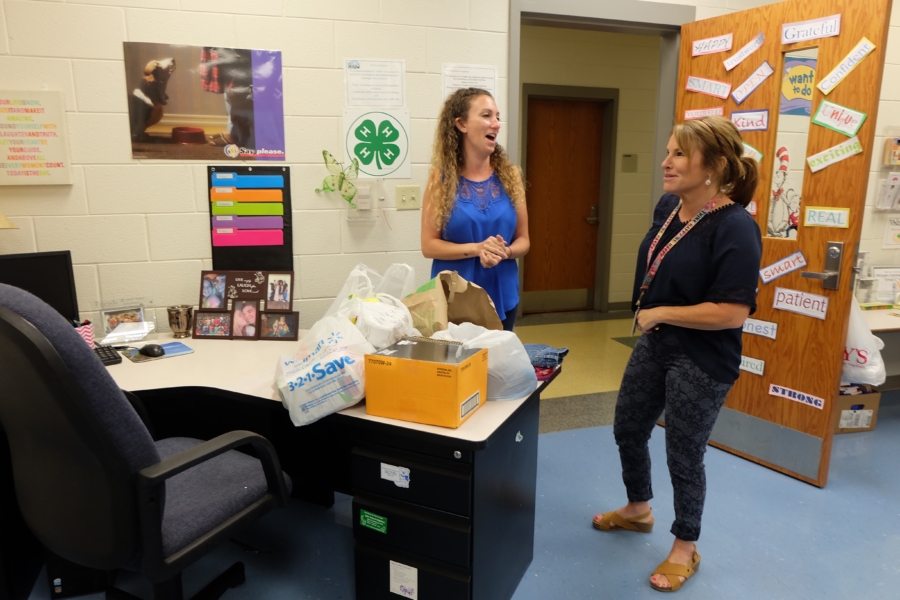
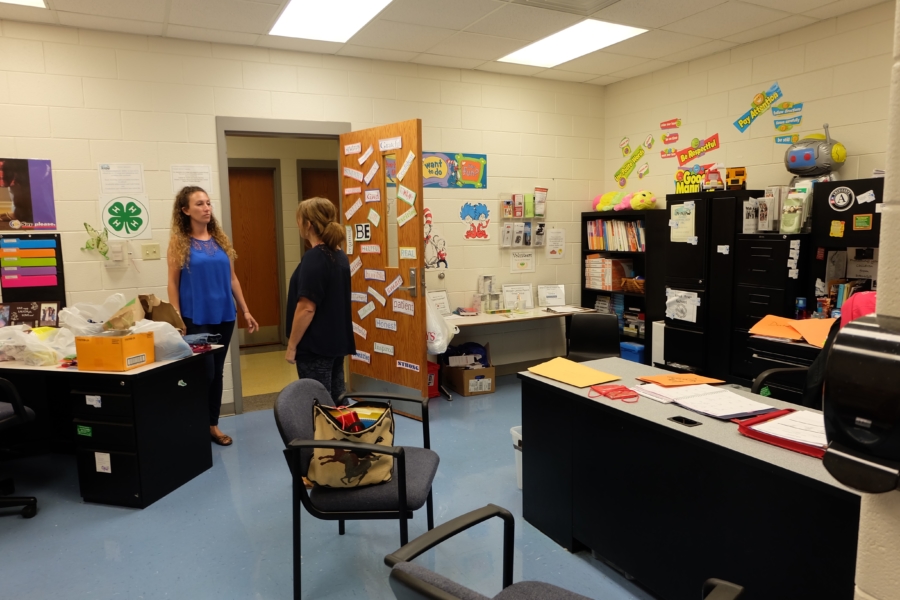
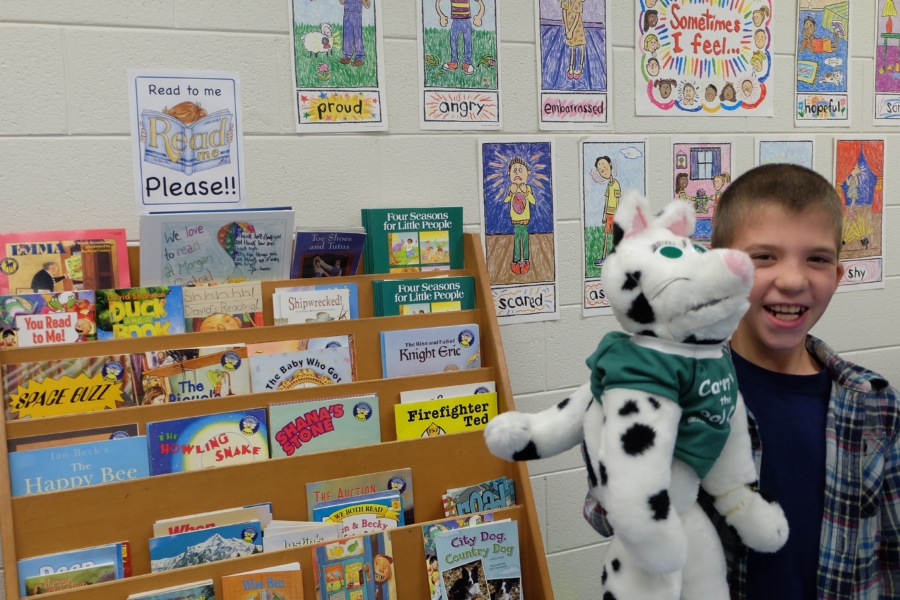
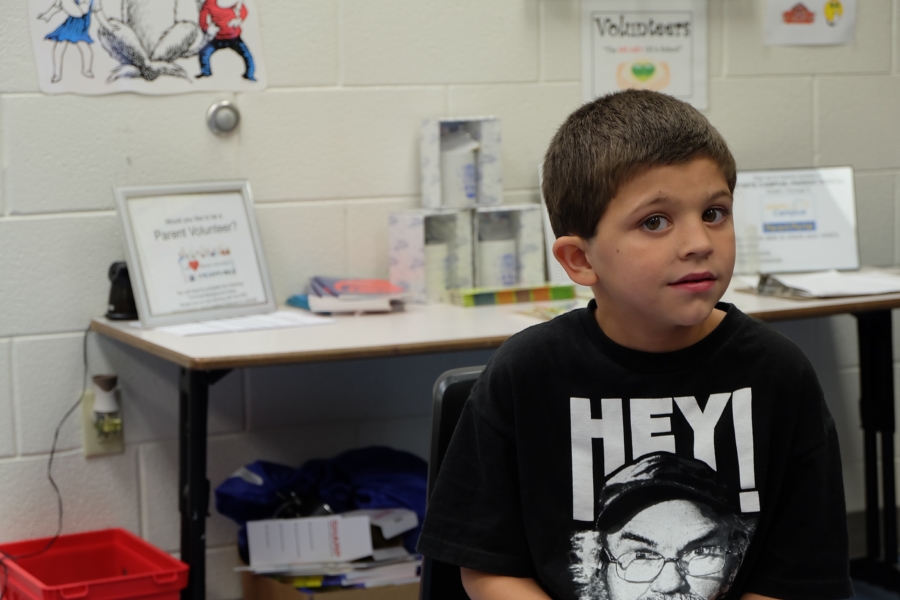
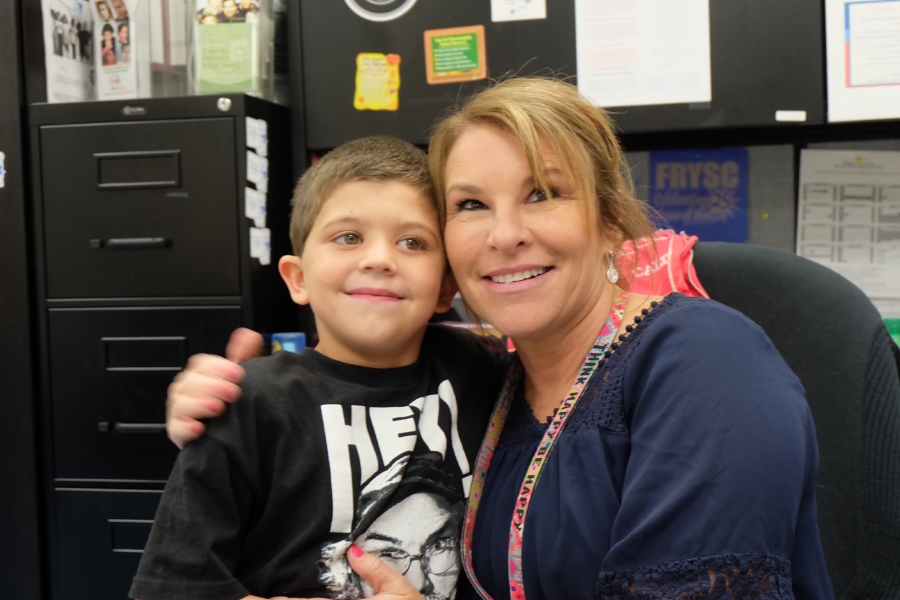



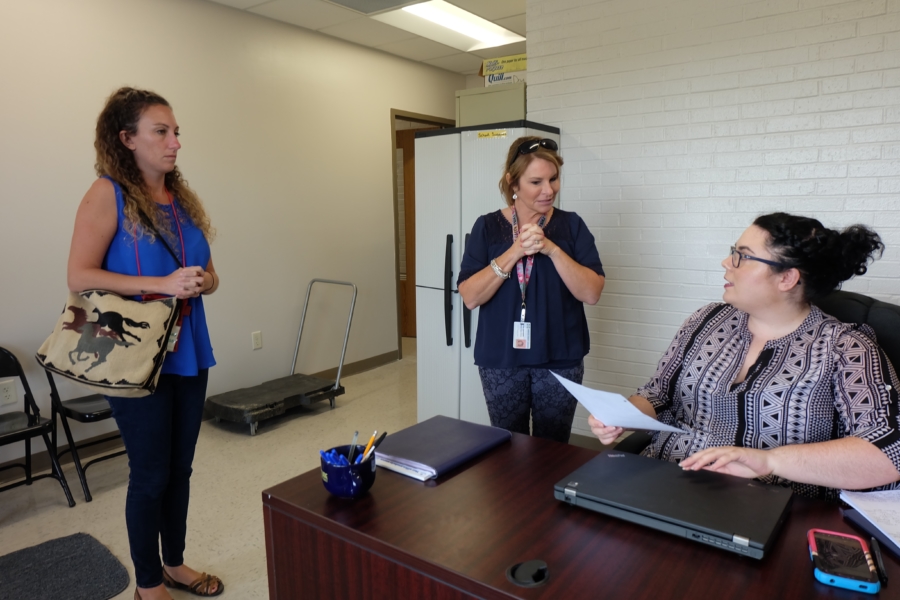
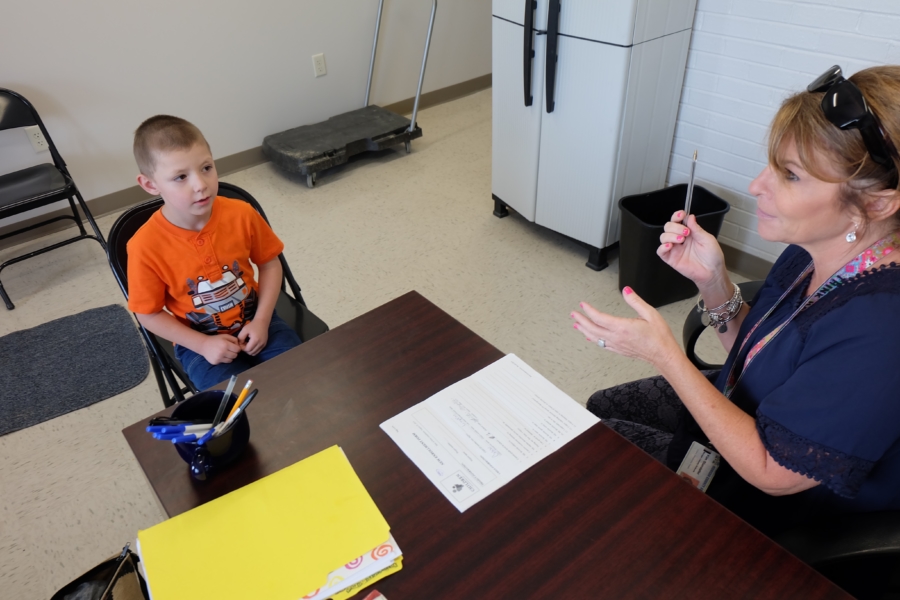
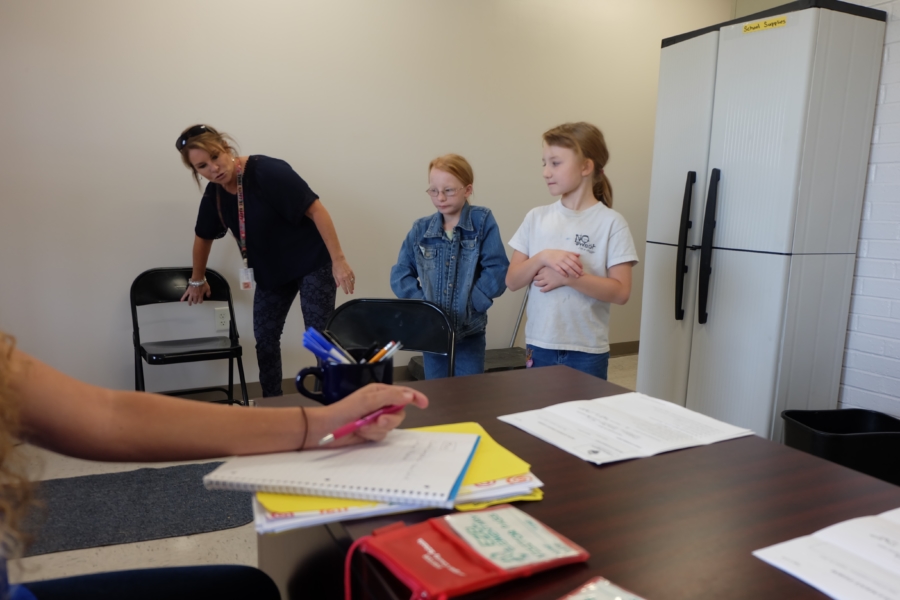
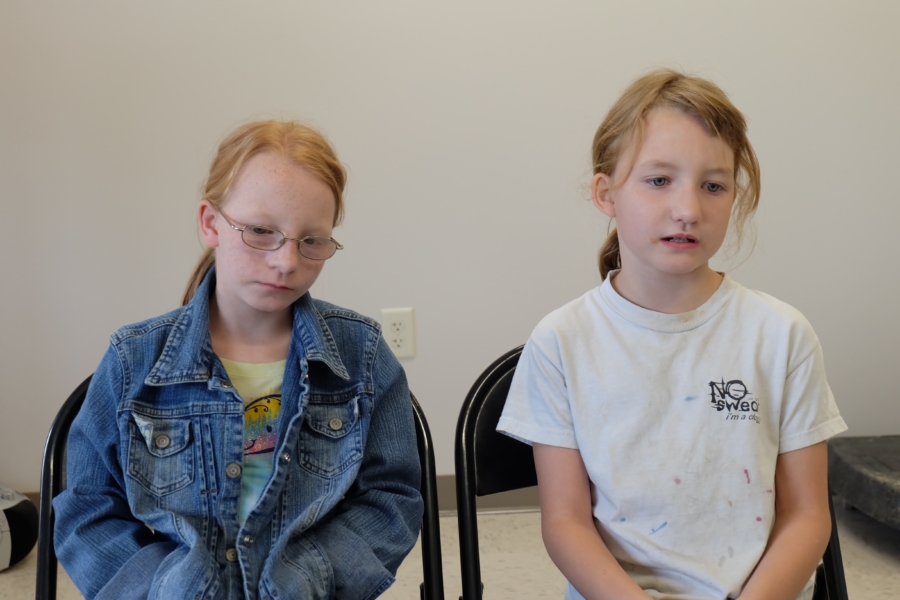

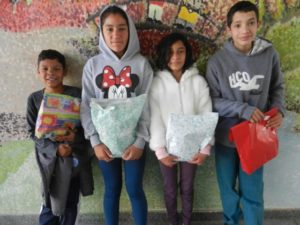 Though children are the focus, the Bleikers want Recanto Esperanca to engage parents as well, to support the entire family. The neighborhood mothers also find themselves at the center, learning new skills, like art, jewelry-making, and more. With this beautiful handmade jewelry as a testament to the impact of Recanto, Thomas and Erika Bleiker have been successful in raising funds from all over the world.
Though children are the focus, the Bleikers want Recanto Esperanca to engage parents as well, to support the entire family. The neighborhood mothers also find themselves at the center, learning new skills, like art, jewelry-making, and more. With this beautiful handmade jewelry as a testament to the impact of Recanto, Thomas and Erika Bleiker have been successful in raising funds from all over the world.